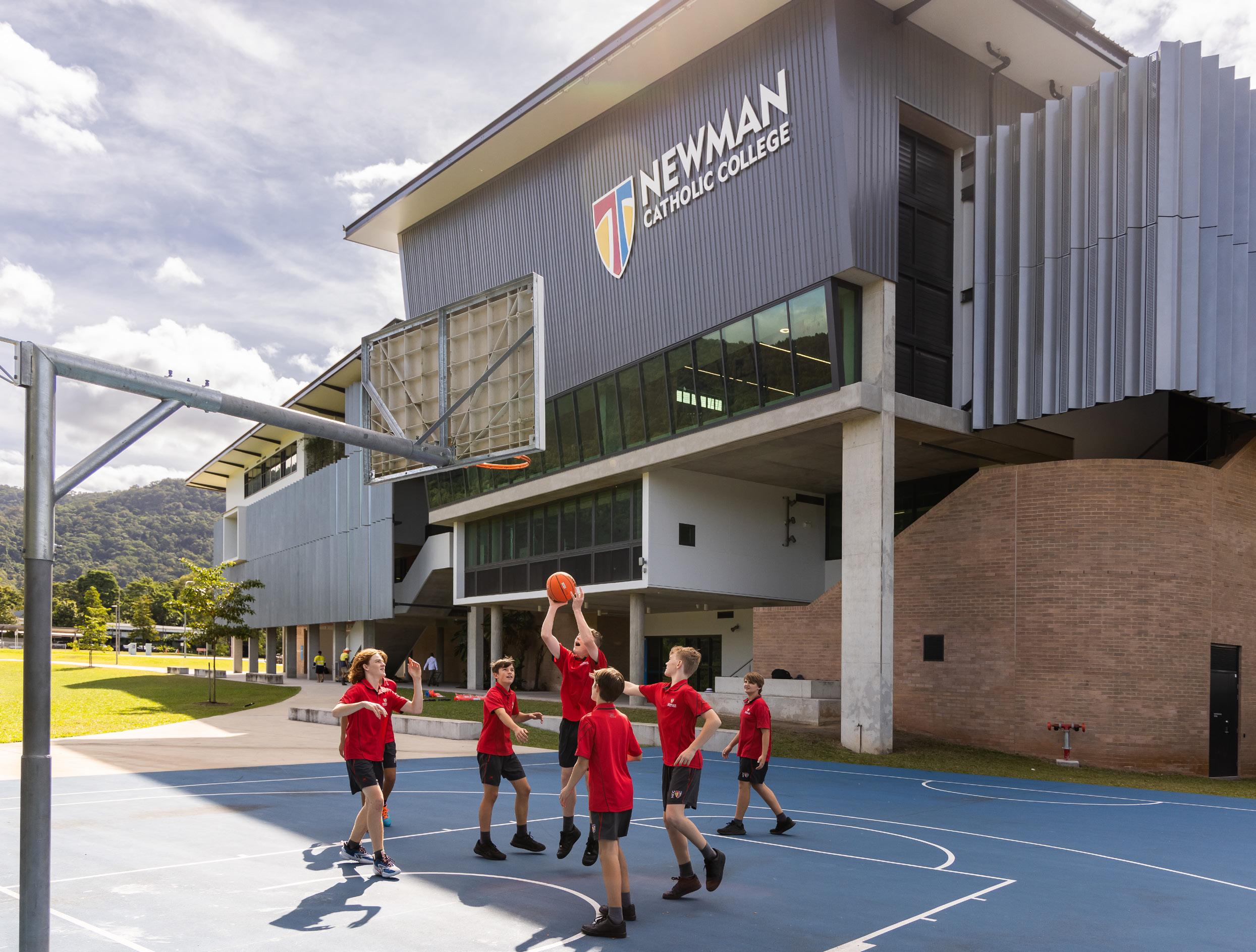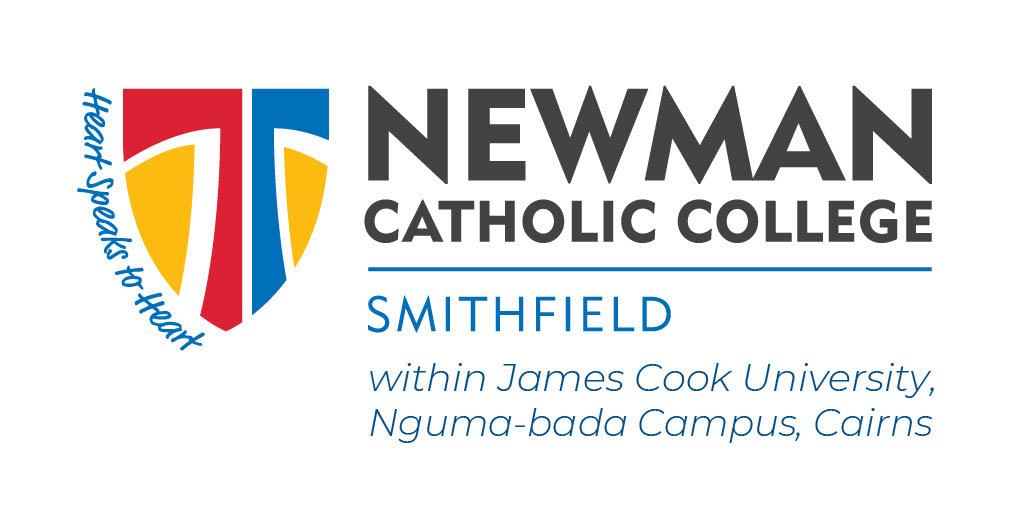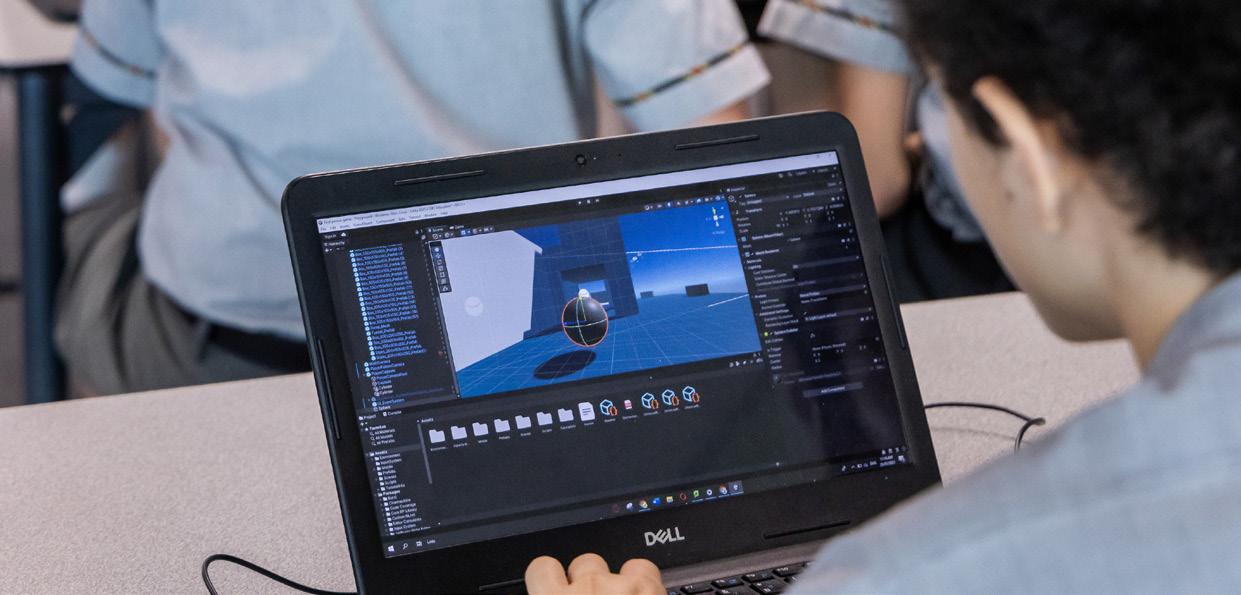
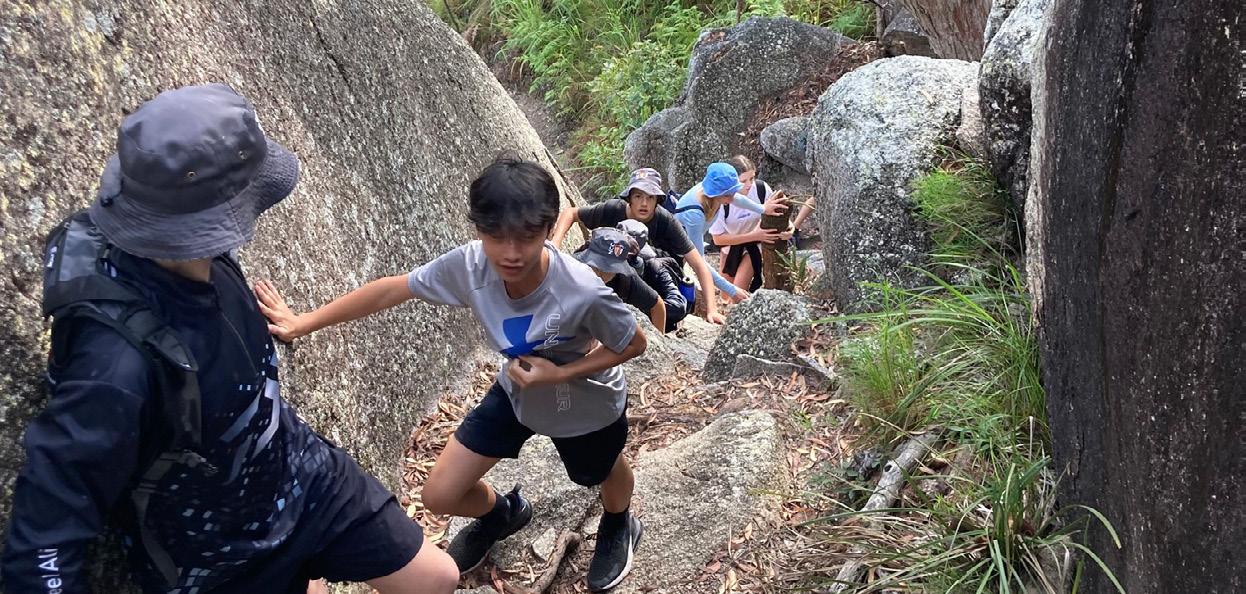
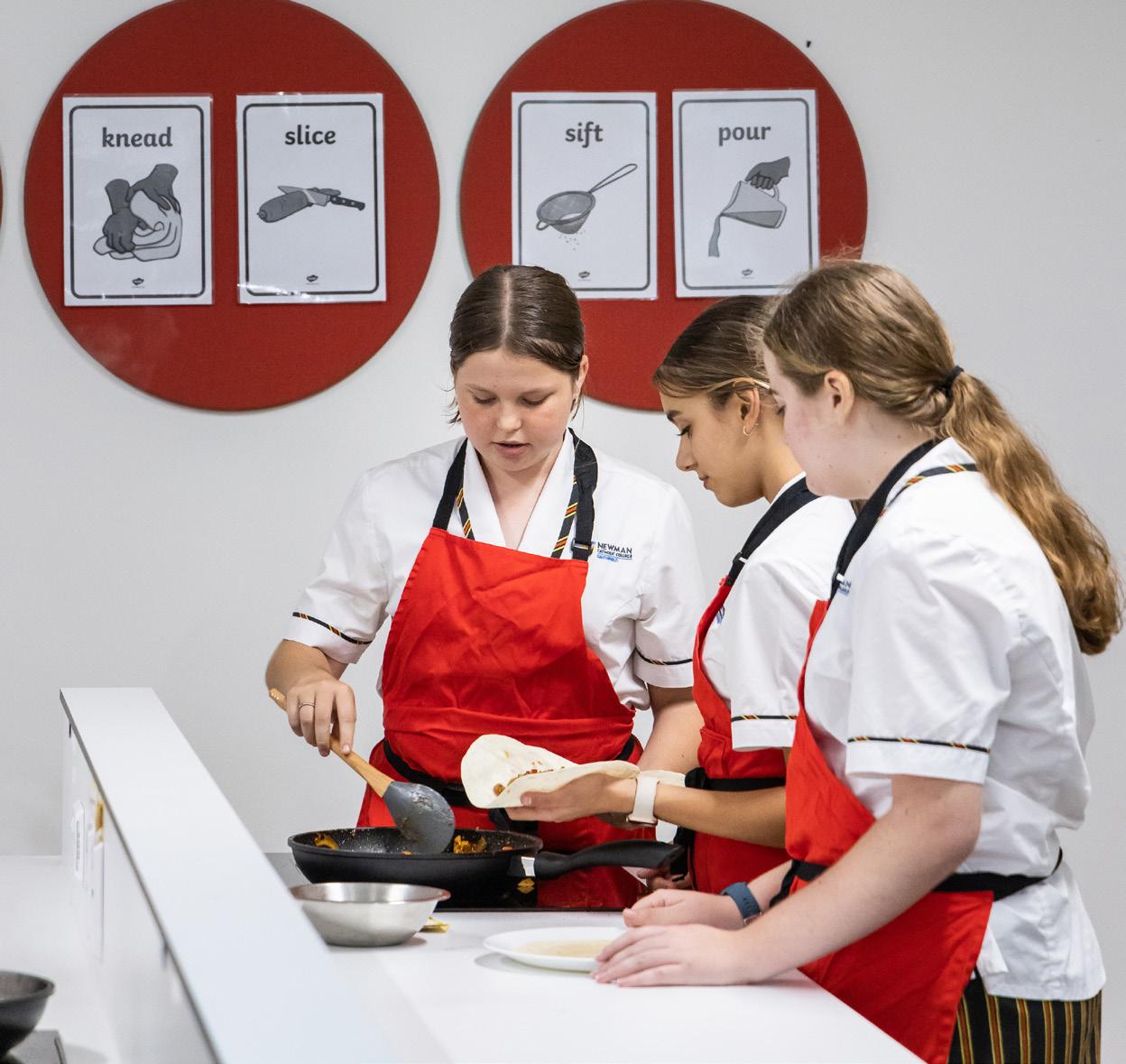
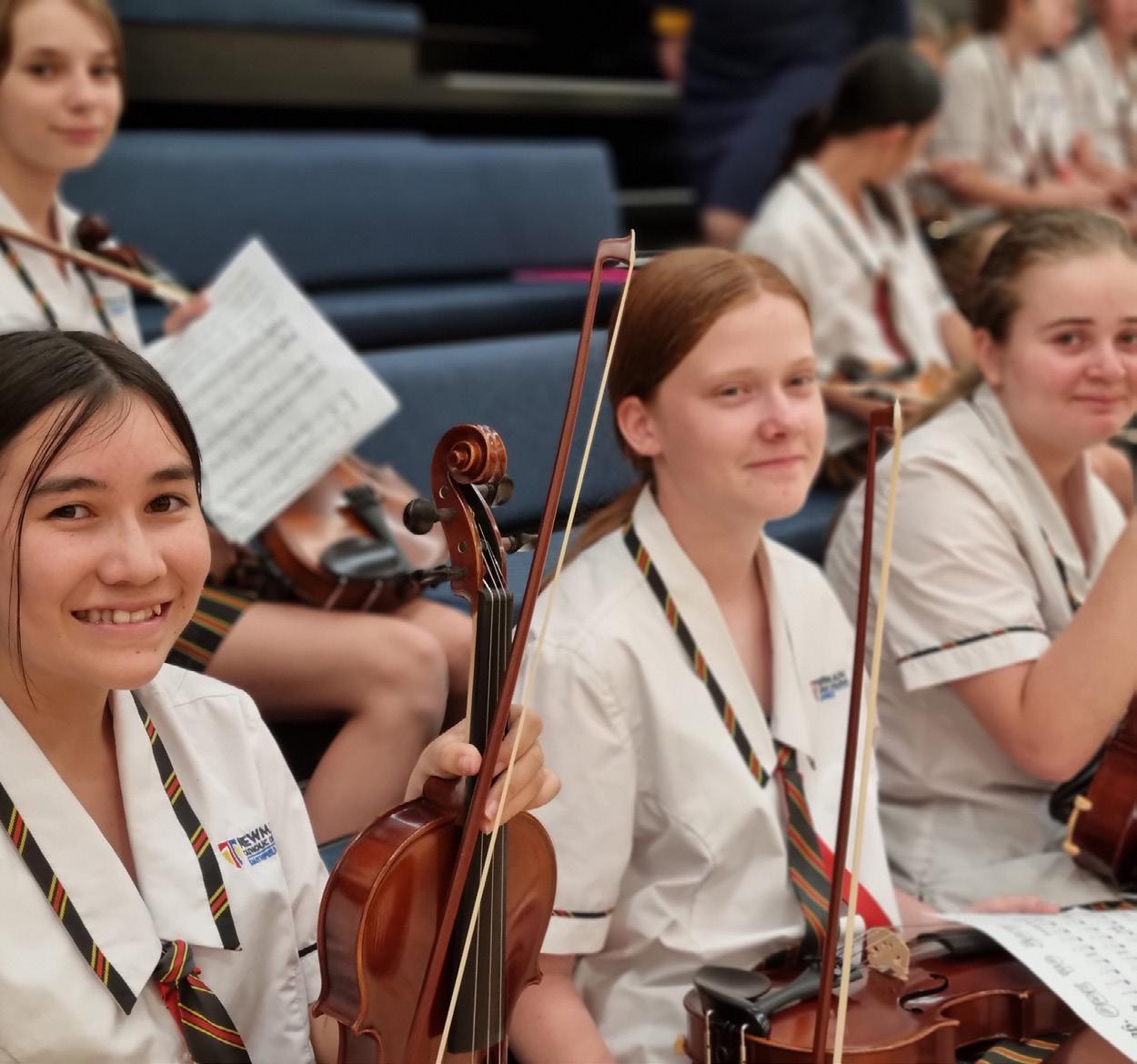
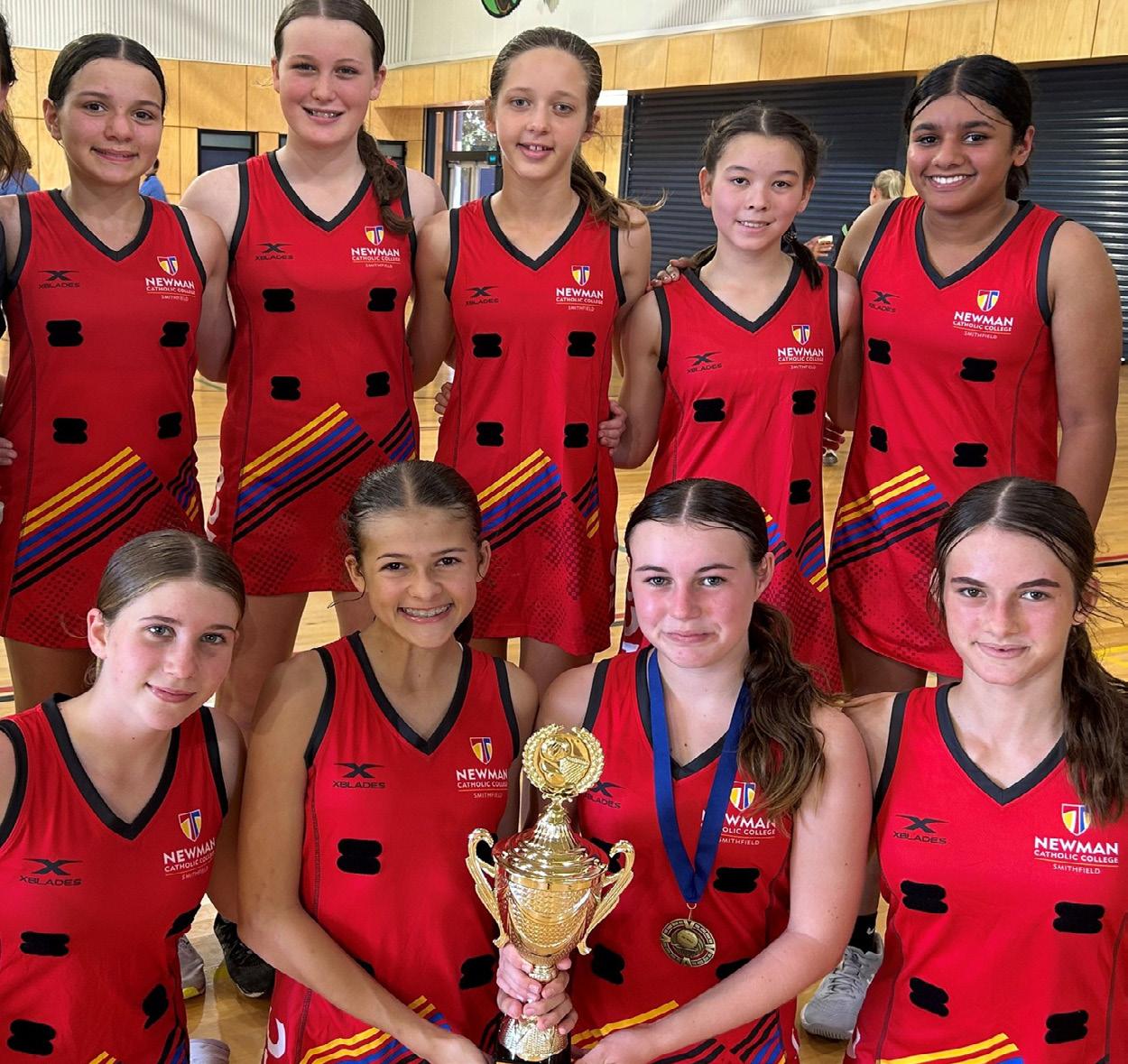
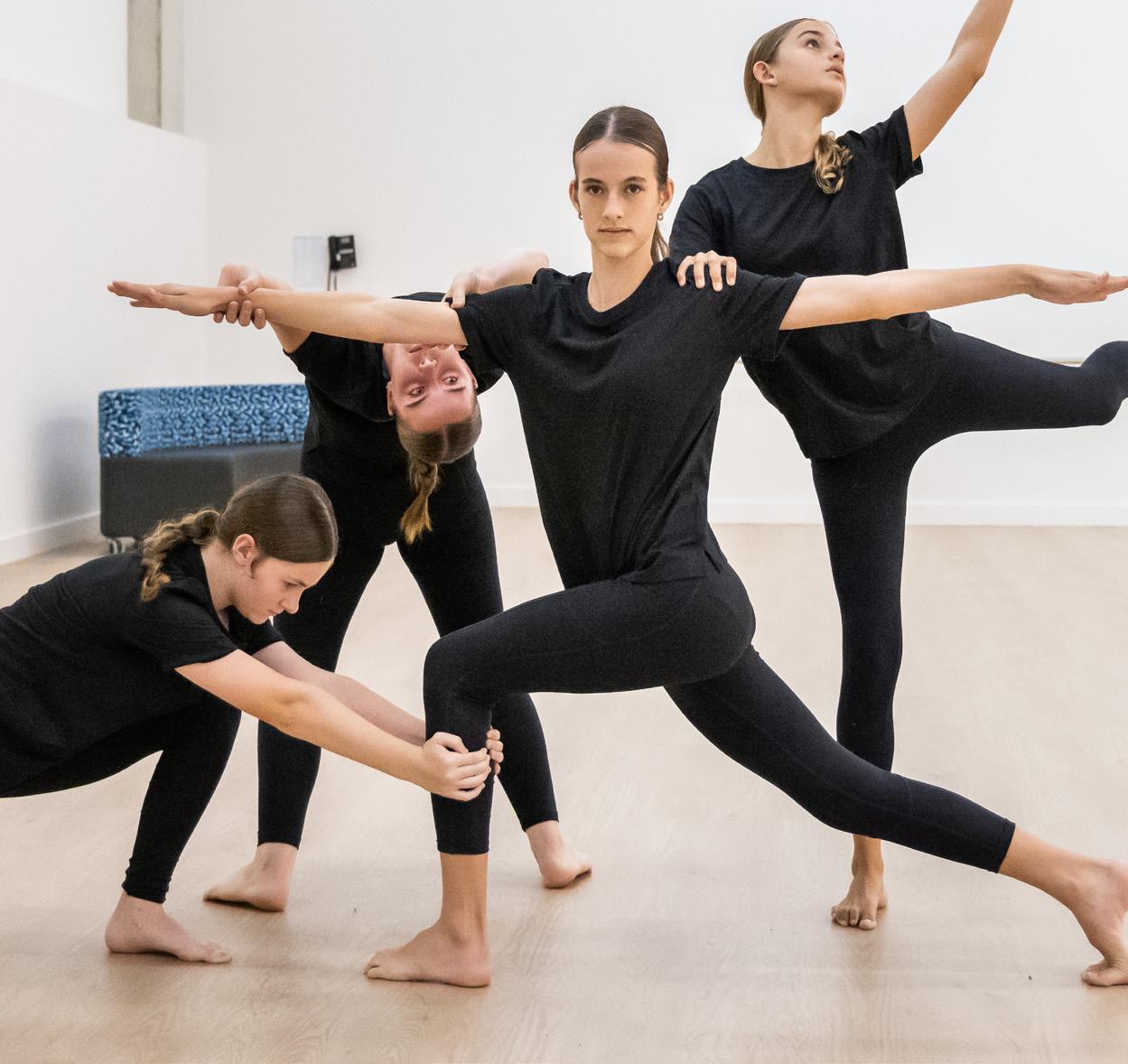
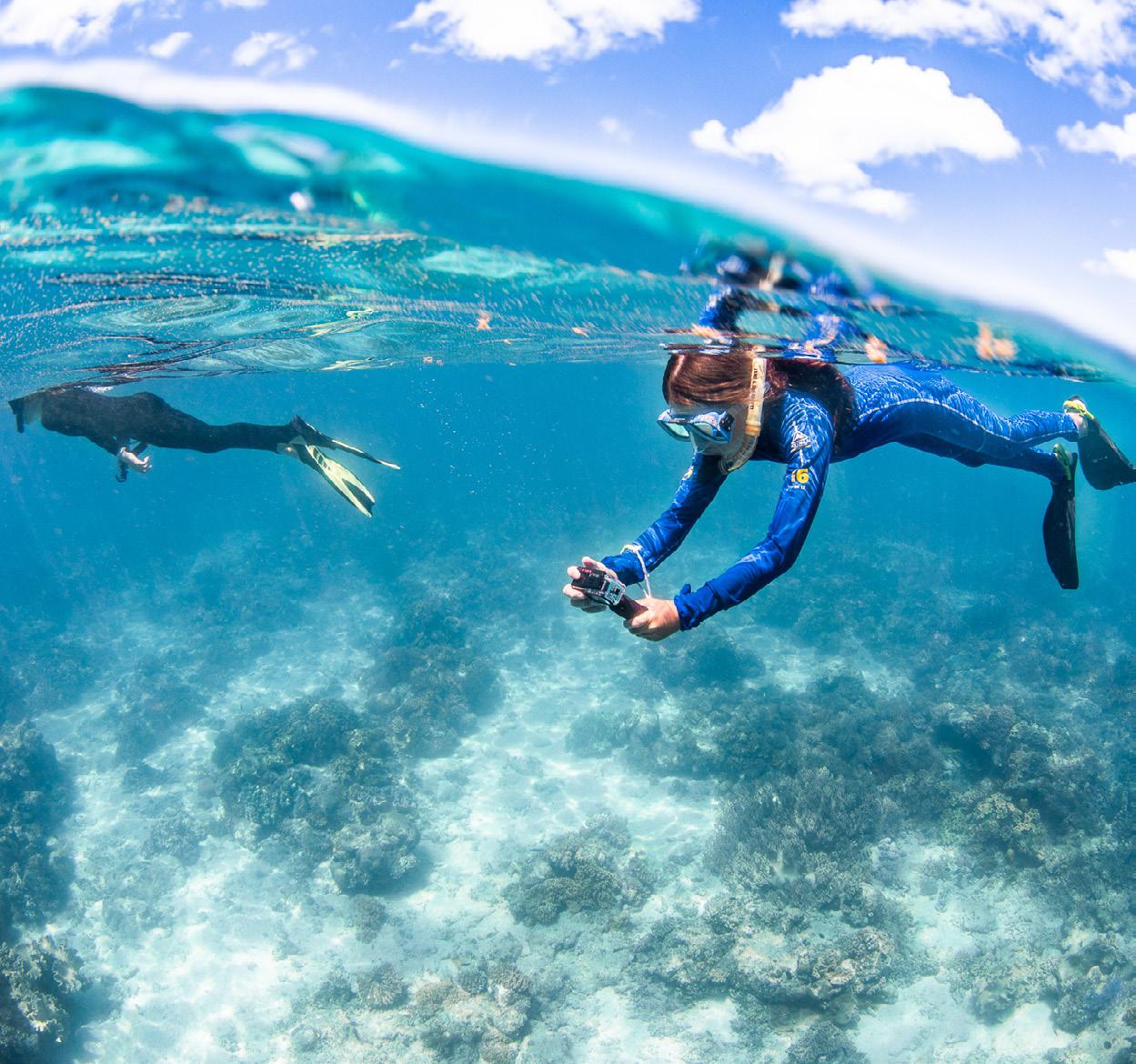
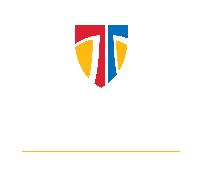









Newman Catholic College is a welcoming and inclusive community and has at its heart an Encounter with the Gospel and a clear Catholic Identity. Here we:
Give daily witness to the presence of Christ amongst us, Inspire and support others to seek the Truth, Support innovative thinkers to teach and learn together.
Together with James Cook University we believe in the power of education to develop people to lead lives of purpose and meaning.
As fully participating members of our Catholic College Community we will:
Give witness to the presence of Christ amongst us.
Be open to a personal encounter with Christ.
Engage in prayer and worship to experience the sacred mystery of God’s presence.
Appreciate the centrality of the Eucharist to our Catholic story.
Celebrate the First Nations peoples who continue to enrich our Newman Catholic College story.
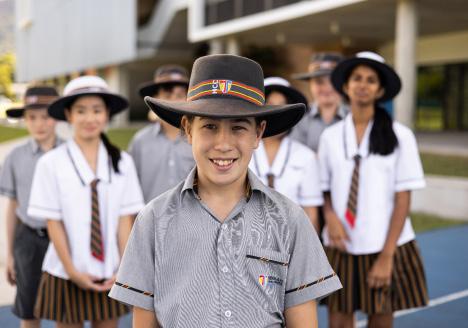
Celebrate and educate the whole person, acknowledging gifts and talents, rights and responsibilities, and culture.
Strive to remain exemplary, relevant, contemporary, adaptable, future focused and agile enough to respond to future change.
Share and seek the truth of Christ’s message passionately.
Value positive relationships including all members of family, parish, and community.
Teach all to see the beauty and the goodness of creation and of humanity, which always retains the imprint of the Creator.
Acknowledge and promote the wellbeing of all within the community.
Embrace our responsibility to serve others.
Foster meaningful and respectful relationships with the James Cook University community and the wider Smithfield and Cairns communities.
If “we love one another, God remains in us” (1Jn4:12) ... so ... “let all that we do be done in love” (1Cor16:14)
It is my pleasure to welcome you to the next phase of your learning journey. The staff at Newman Catholic College wish you every success in the courses you choose. Choose wisely taking into consideration the things you enjoy studying and where your talents lie. This is the best formula for success. There are aspects of your timetable that are compulsory, but electives are an opportunity to excel in the areas of your choice. When students come to our College, we make a commitment to provide them with the opportunities and support to achieve not only excellent academic progress, but also fundamental life skills such as effective listening, creativity and problem solving. The attitude and atmosphere of our College is one which always strives to achieve quality learning and never settles for anything less. As our students take up their leadership roles, seats in our classroom, or when they are honing their skills in the sporting fields and/or the performing arts stages, it is exactly this attitude that we aim to inspire in all our students with everything that they do. I sincerely thank parents as their child’s first educator, for starting this foundation work with their children. We intend to further develop these characteristics, and attitudes that help young learners to manage their time, get along with others, think critically, problem solve, and behave in an ethical manner. These essential abilities are known as transferable skills (Appleby, 2001), they can be developed in one environment and then transferred to future environments (eg. college, university, and the workplace) providing a platform for future success.
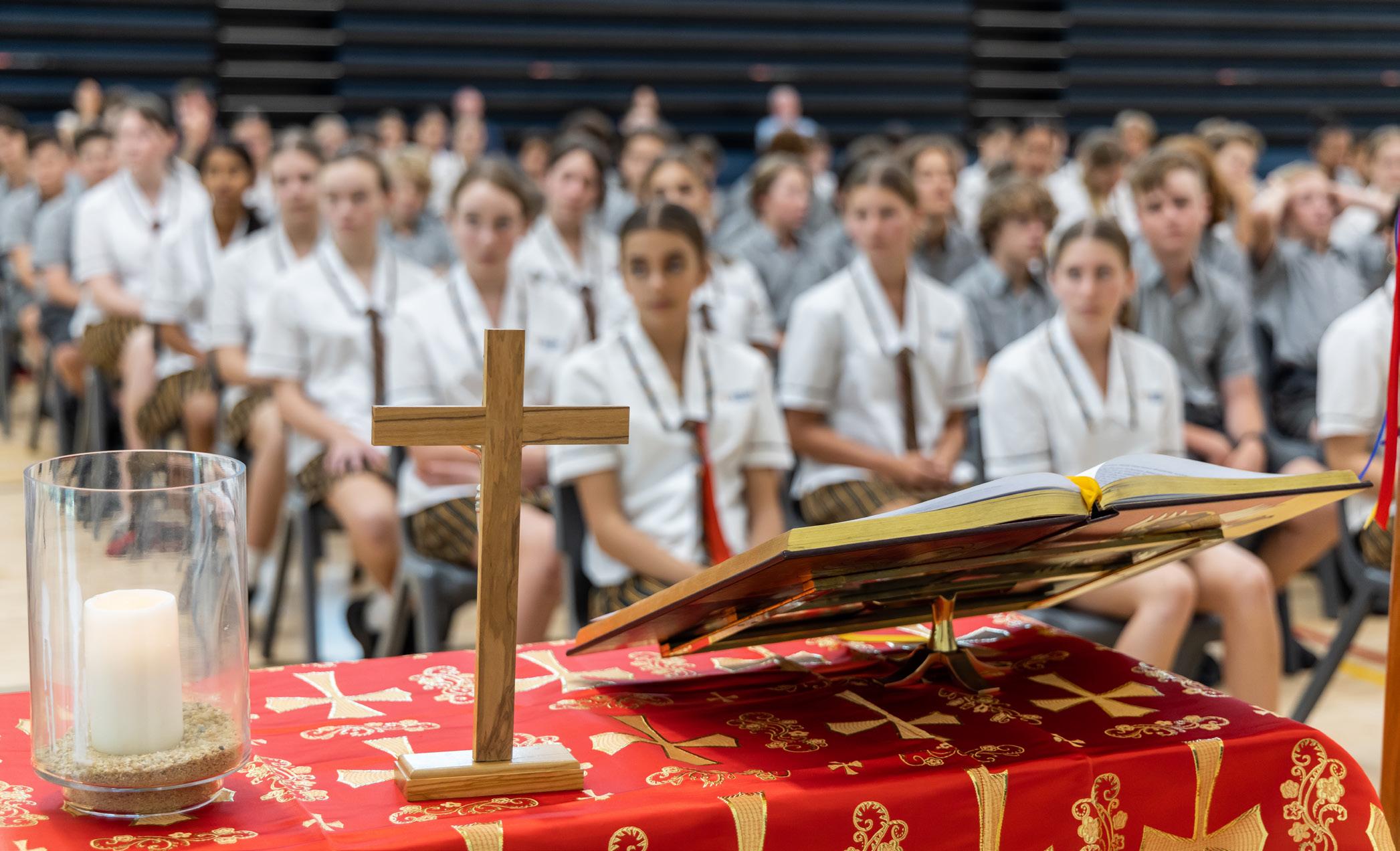
Following on from this, it is our aim to develop in our students a lifelong passion for learning and a genuine interest in their environment and the people around them. At Newman this will be done through a curriculum that is forward thinking, innovative, digital and design focused. It is strategic in its intent. We wish all students success. Enjoy the amazing subject selection that comes to you as a gift from our dedicated and talented staff in this handbook
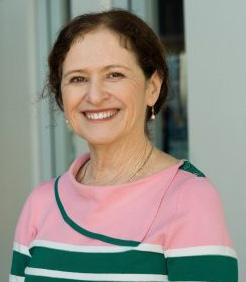
I would like to extend a warm welcome to all the new families who are joining the Newman Catholic College community in 2024. As a new College, we are building the foundation and shaping our way and it’s exciting to now have a Year 9 cohort. This handbook contains information about the electives that we will be offering your child in 2024. In addition to the electives offered, all students complete a core program that includes Maths, English, Science, History, HPE and Religious Education.
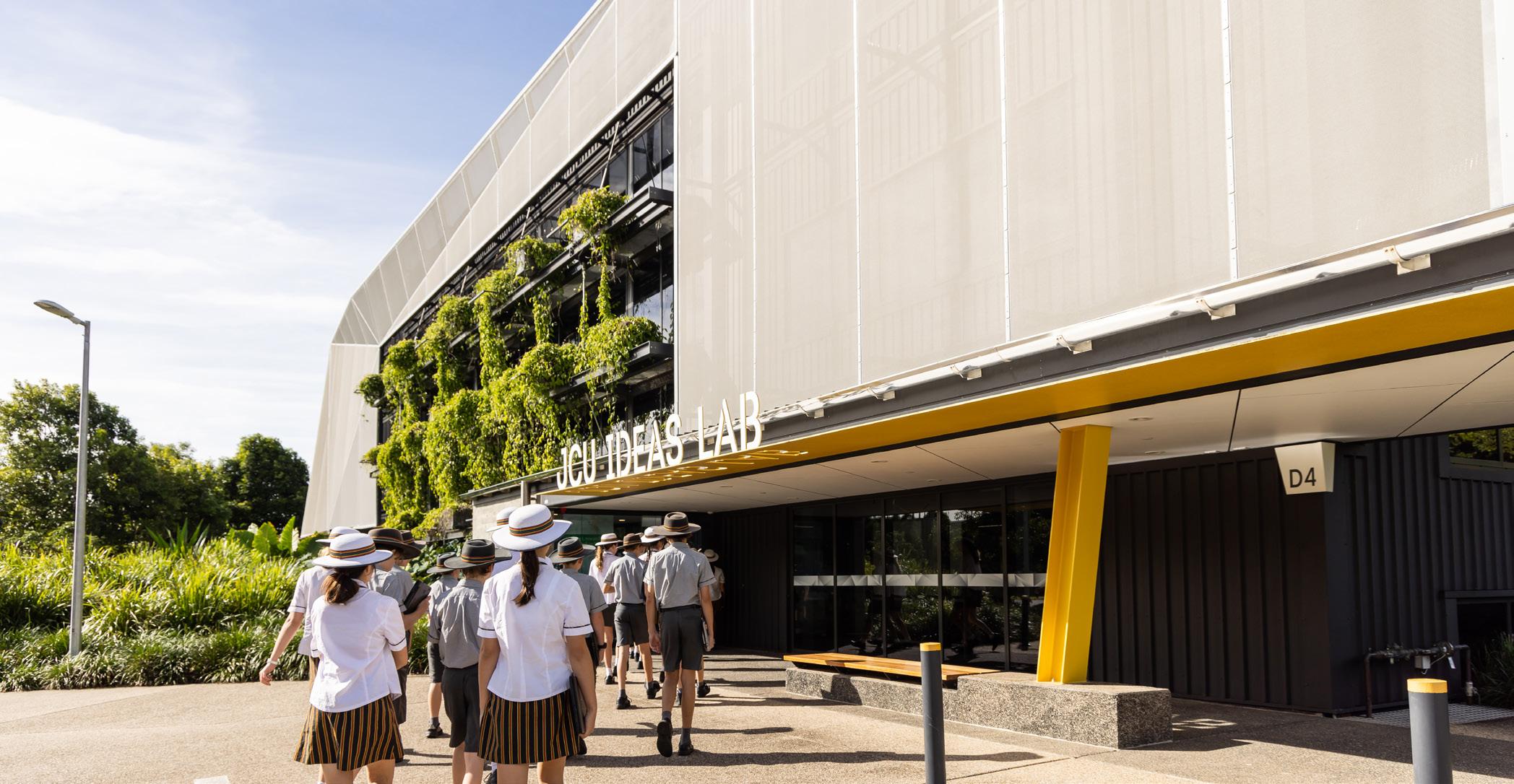
You may note that we offer a variety of electives that are a little bit different from traditional subject areas. I would like to thank the amazing staff at Newman for taking the time to build the unique resources, partnerships and activities from scratch whilst navigating the Australian curriculum and other legislative or regulatory demands that add significant complexities to offering these types of subjects.
Year 7 and 8 provided an opportunity to sample a wide range of learning before students start focusing on specific subject areas. Please take the time to read through the details of each subject and take note of any prerequisites, selection rules and key dates regarding the selection rounds. In Year 9, there are not many selection restrictions, with students able to select any available subject. However, these subjects in Year 9 and 10 now matter, as subjects in Years 11 and 12 will likely have strong prerequisites. In Year 9, the electives will continue for a semester.
Mr Wilbur Donovan Deputy Principal - Academic StudiesLearner mentors have been tracking student performance and interest in their elective programs and will be well placed to offer advice regarding elective selections. For more detailed career counselling advice, please feel free to contact me directly.
Thank you again for all your support with subject selections and for any enquiries or feedback regarding subjects and the subject selection process, please do not hesitate to contact me at wdonovan@cns.catholic.edu.au

PREREQUISITES: C Grade or better in Science
Our students are fortunate to be located right on the doorstep of planet Earth’s largest living structure - the Great Barrier Reef. They have the unique opportunity to study Marine Science as an elective and witness the reef’s beauty firsthand and develop a deeper appreciation for its ecological significance.
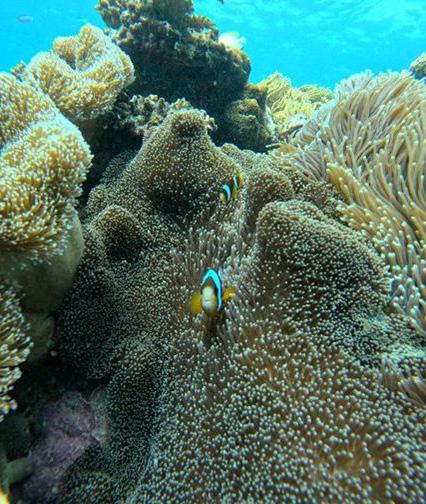
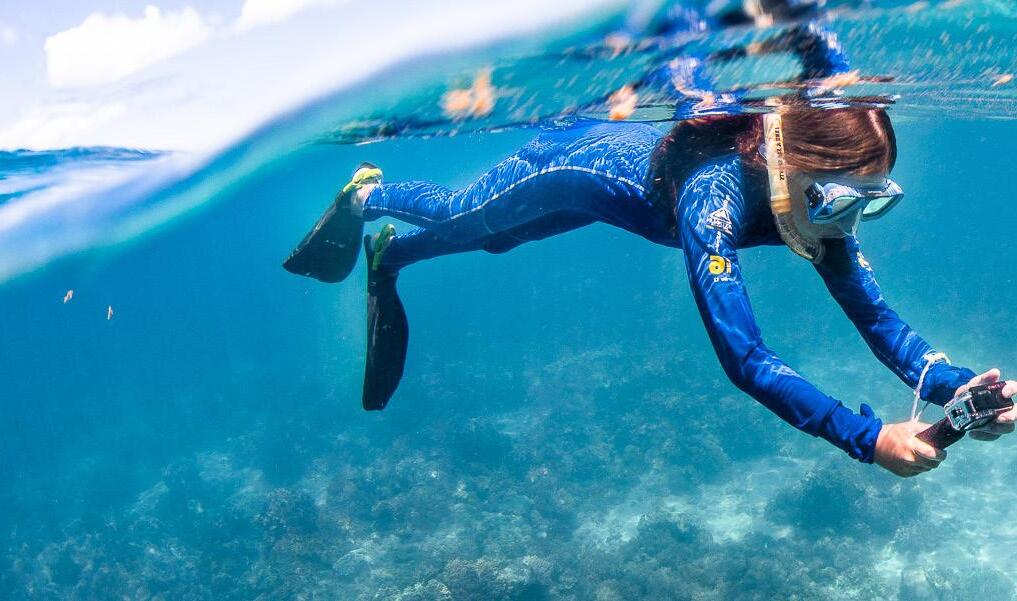
The Year 9 program offers the option to obtain an internationally recognized PADI SCUBA certification, which allows students to explore the underwater world and develop essential diving skills. This certification not only opens up avenues for future diving adventures, but also fosters a sense of responsibility towards marine conservation.
Our co-location with James Cook University provides students with invaluable opportunities to engage in research projects. Participating in real-world scientific investigations empowers students to apply their knowledge, contribute to ongoing studies, and develop critical research skills that are highly valuable in the field of Marine Science. Choosing Marine Studies in Year 9 will set students up for further studies in QCAA Marine Science, Biology and Aquatic Practices.
Some of the scientific knowledge and skills covered during the semester will include:
• Ecosystems, marine life, and environmental conservation.
• Pressure and its effects on gases and the body underwater.
• Boyle’s Law and how it relates to changes in volume and pressure.
• Archimedes’ principle and its application to buoyancy control.
• Gas laws, including Dalton’s law and Henry’s law, which explain gas mixtures and gas absorption.
• Decompression.
• Underwater navigation, including compass use and understanding natural landmarks.
• Physiology of diving.
• Safety protocols and emergency procedures for handling dive-related incidents and hazards.
• Proper use and maintenance of dive equipment, including regulators, BCDs, and dive computers.
Students will also be given opportunities to participate in laboratory activities, fieldwork and project-based learning experiences.
Covers foundation content for the following courses:
• Marine Science – Unit 1: Oceanography, Unit 2: Marine Biology, Unit 3: Marine systems.
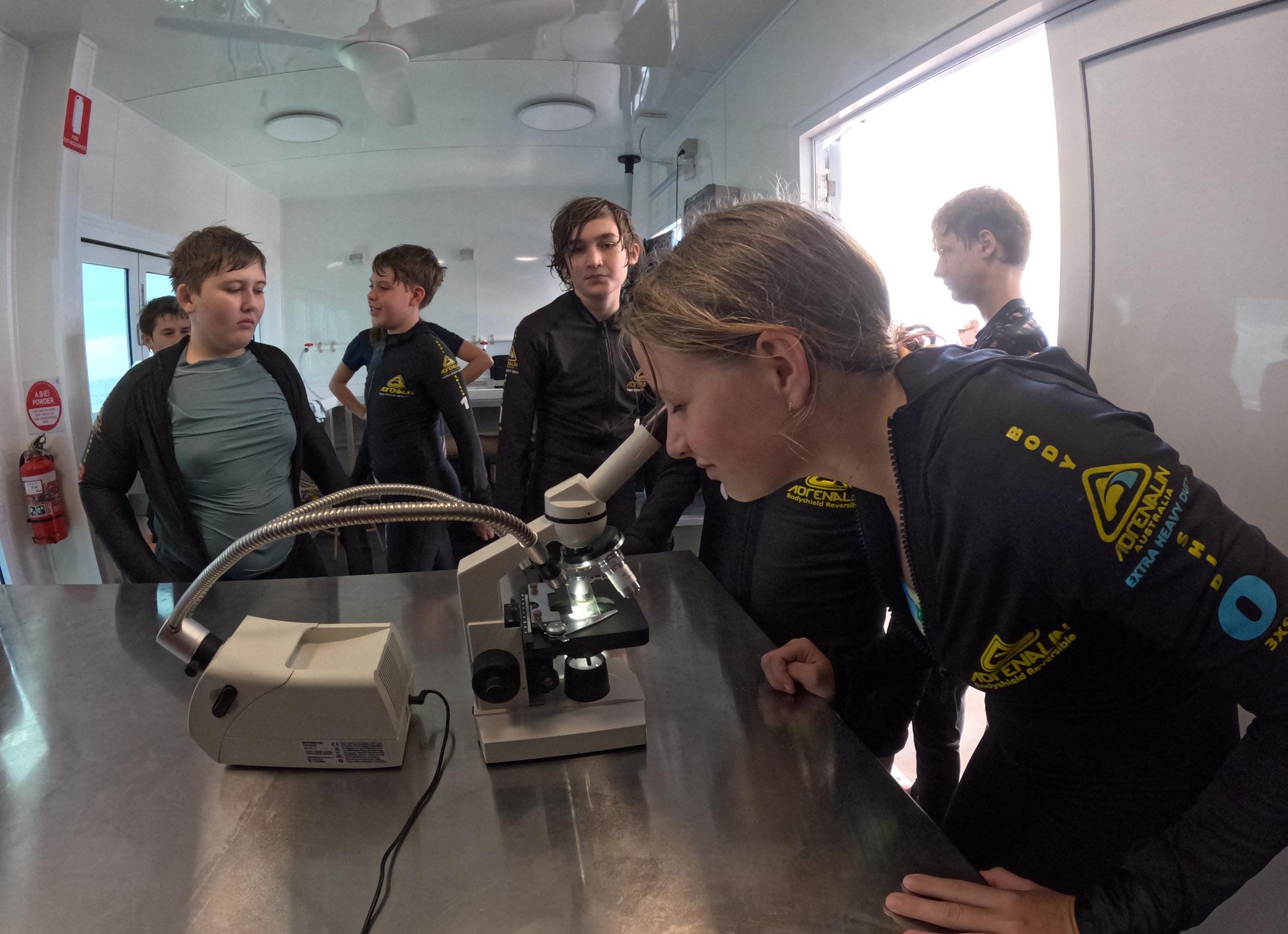
• Biology – Unit 1: Cells and Multicellular Organisms, Unit 3: Biodiversity and the Interconnectedness of Life.
• Chemistry – Unit 2: Molecular interactions and reactions.
NIL
Optional:
SCUBA Course: All students complete the theory in class and then they have the option to complete the practical training at an additional cost with an external provider. Approx $900 Snorkel Course: Pool entry/bus for snorkel course to Smithfield pools and back. $5 pool entry + Bus fare.
Reef trip optional: This will occur on a weekend Approx $200
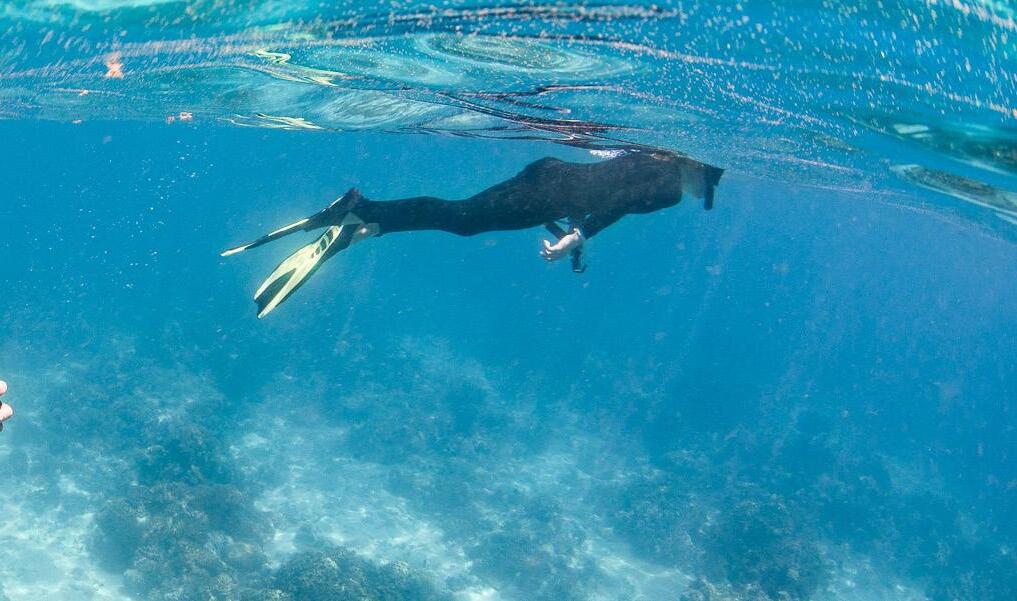
PREREQUISITES: Year 8 Science
Exploring the realms of Health Sciences opens up a world of captivating discoveries and opportunities. It’s within this field that some of humanity’s most crucial breakthroughs have taken place, from the germ theory of disease to state of the art gene therapies. By studying Health Science, students can gain strong foundational knowledge and skills within multiple healthcare fields.
Through this elective, students will develop practical skills, improve their literacy, and delve into various scientific and medical fields like Medicine, Veterinary Science, Medical Laboratory Science, and Sports/Exercise Science. This exposure not only broadens their understanding but also enhances their technical literacy across multiple domains.
With the acquired knowledge, students can unravel the intricate mechanisms of life, investigate diseases, and explore potential solutions for improved health. Studying Health Science at this stage sets the stage for future scientific endeavours and opens doors to potential careers in healthcare and research.
Students will delve into a wide range of topics aligned with the Queensland Senior Curriculum, including Biology and Health units. They will explore the fundamental concepts of Anatomy and Physiology, investigating the structure and function of the human body systems through a series of dissections and investigations. Students will learn about the factors that influence health and wellbeing, including lifestyle choices, social determinants, and the impact of the environment. They will also examine the principles of disease and its management; exploring common diseases, risk factors, and preventive strategies. Additionally, students will gain an understanding of health promotion and the role of health professionals in the community.
This will culminate with an excursion to the Cairns Hospital Pathology Department. Through this curriculum, students will develop a comprehensive knowledge base and critical thinking skills in the field of Health Science.
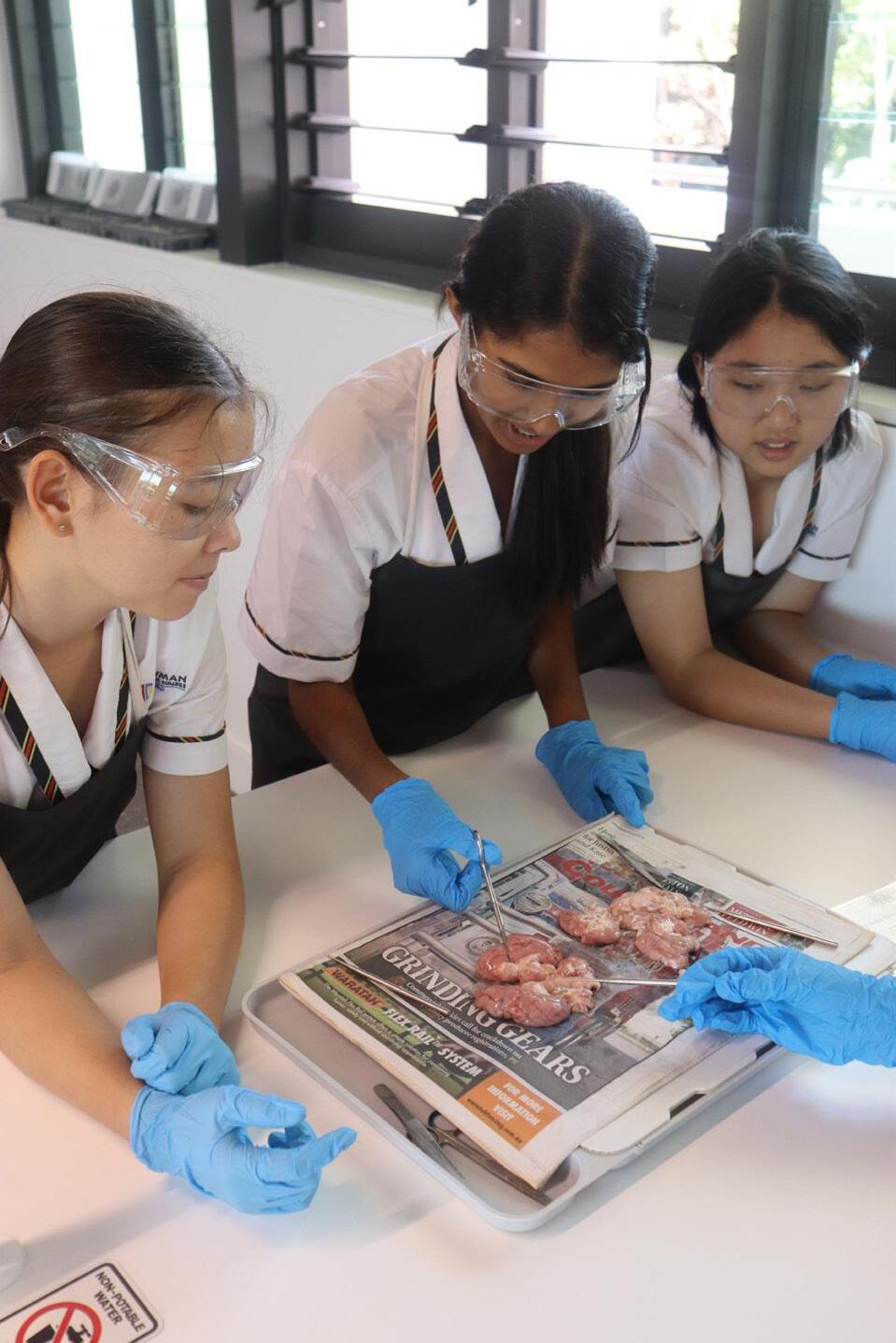
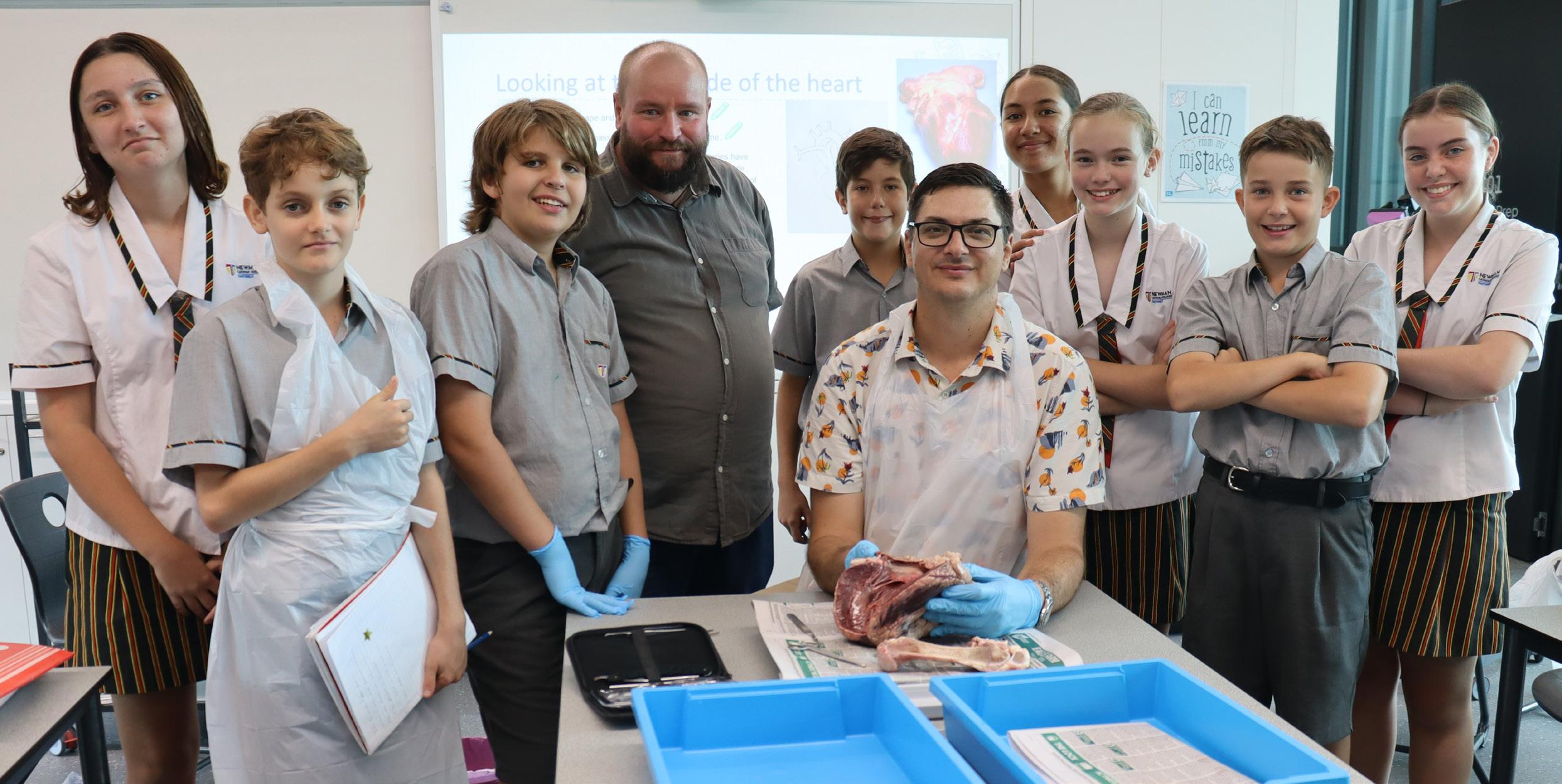
LINKS TO YEAR 11 & 12 Senior Biology and Health.
COST PER STUDENT
PREREQUISITES: Year 8 Science
Earth Science encompasses a wide range of captivating topics, such as Geology, Meteorology, Oceanography, and Environmental Science, providing an in-depth understanding of our planet’s dynamic processes. By delving into Earth Science, you gain insights into natural disasters, climate change, the formation of minerals, and the planet’s delicate ecosystems. This knowledge not only fosters an appreciation for the Earth’s complexities but also equips you with essential skills to address pressing environmental issues and make informed decisions in a rapidly changing world. Moreover, Earth Science fosters critical thinking, problem-solving, and analytical skills, nurturing a scientifically literate and environmentally conscious generation. Embracing this subject empowers you to explore the wonders of our home planet and become an active participant in shaping a sustainable future for generations to come.
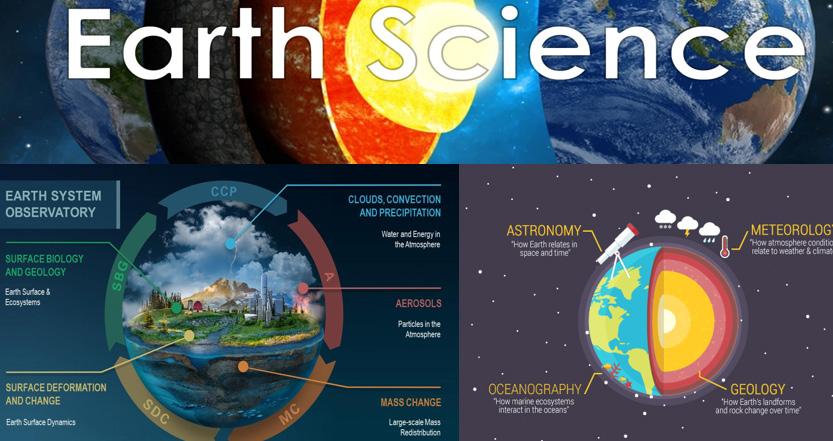
Representations of the carbon cycle - examining how key processes including combustion, photosynthesis and respiration rely on interactions between Earth’s geosphere, biosphere, hydrosphere, and atmosphere (AC9S9U03):
• Investigating the greenhouse effect and relating it to the role carbon dioxide plays in maintaining temperatures that support life on Earth.
• Conducting a field investigation to evaluate carbon sequestration in an ecosystem, such as measuring tree biomass, deadwood, leaf litter and soil depth, and using formulas to calculate approximate carbon storage.

• Investigating how First Nations Australians are reducing Australia’s greenhouse gas emissions through the reinstatement of traditional fire management regimes.
Investigate tectonic activity including the formation of geological features at divergent, convergent and transform plate boundaries and describe the scientific evidence for the theory of plate tectonics:
• Evaluating the impact of tectonic events on human populations and examining engineering solutions designed to reduce the impact.
• Relating the extreme age and stability of a large part of the Australian continent to its plate tectonic history.
• Researching First Nations’ Australians cultural accounts that provide evidence of earthquakes and volcanoes.
There is potential to deliver the QCAA accredited Earth Science course as a senior subject. This subject also aligns with all three core science strands that will be offered in the senior school as the themes covered during the course draw from, and reinforce concepts that are fundamental to each specific science discipline – as well as teaching 21st Century skills such as critical thinking, big picture thinking, and connecting skills across different science disciplines. This elective would allow students who enjoy science, but do not yet have a specialism/preferred science, to explore the big concepts of biology, chemistry, and physics in an integrated/cross-curricular subject.
PREREQUISITES: NIL
The Year 9 Legal Studies elective focuses on understanding Australia’s democratic system. Students will analyse the role of the Australian Constitution, the federal system of government, and reasons for constitutional change. They will explore policy development, legislative processes, and the court system. Additionally, students will learn about civic participation and the influence of media on identity and diversity.
Throughout the unit, students will develop skills in questioning, researching, and analysing information from various sources. They will evaluate perspectives and challenges related to political, legal, and civic issues. Students will also identify and assess methods of civic participation.
Using their legal studies knowledge, students will develop descriptions, explanations, and evidence-based arguments. By the end of the unit, they will have a comprehensive understanding of Australia’s democratic system and will be able to contribute to civic life locally and globally. They will also gain media literacy skills to navigate information effectively.
This unit empowers students to become informed and active citizens, equipped with the necessary knowledge and skills to engage meaningfully in civic life and understand their rights and responsibilities in a democratic society.
In Year 9 legal studies, students will delve into the foundational aspects of Australia’s political landscape. They will explore the Australian Constitution’s role in shaping the federal system of governance, democratic processes, and the mechanism for constitutional change through referendums. Legislative processes governing federal policy formulation

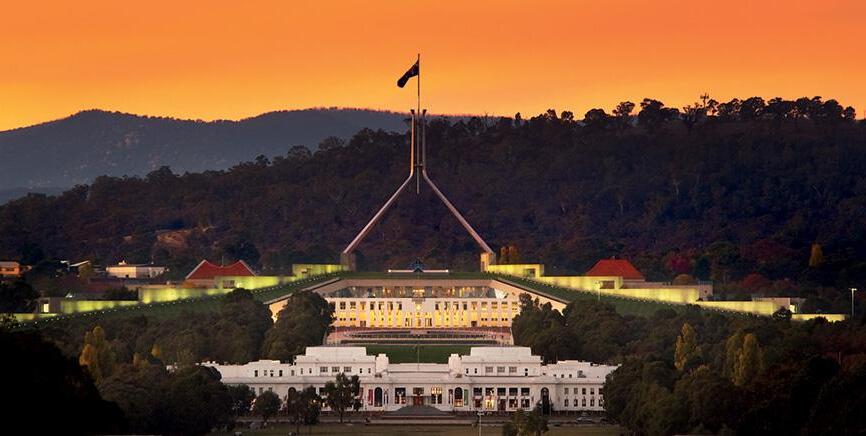
and implementation will be scrutinized. Students will gain insight into Australia’s court system, understanding its structure, jurisdiction, and the proceedings of courts and tribunals. The course will emphasise the roles of courts, judges, lawyers, and juries in trials, focusing on the rights of the accused and victims. Participants will study the diverse contributions of individuals, groups, and media in shaping civic life, both nationally and globally. Skill development will involve questioning, comparing information, analysing differing perspectives, evaluating participation strategies, and effectively presenting arguments using pertinent civic knowledge.
This subject articulates directly into the senior subject of Legal Studies.


The Year 9 Geography elective focuses on exploring the interactions between people, places, and environments. The unit aims to develop students understanding of how human activities and environmental processes influence and shape different places. Students will learn about the effects of human activity on environments and vice versa, as well as the distribution of biomes and its implications for the environment.
Throughout the unit, students will develop essential geographical skills by generating questions, collecting and analysing data from various sources, and interpreting patterns and trends. They will use this information to draw evidence-based conclusions about the impact of geographical phenomena and challenges. Additionally, students will develop strategies to address these issues, considering environmental, social, and economic factors. Using geographical knowledge, concepts, terms, and digital tools, students will develop accurate descriptions, explanations, and responses based on research findings. By the end of the unit, they will possess the skills to critically analyse geographical interactions and propose sustainable solutions to address challenges effectively.
PREREQUISITES: NIL
In Year 9 Geography, students will explore diverse biomes characterised by unique climates, soils, vegetation, and productivity patterns. They will investigate human impacts on biomes for food, industrial materials, and fibres, and delve into the environmental, economic, and technological factors influencing agricultural productivity in both Australia and an Asian country. The course will address sustainable food production challenges and strategies in Australia. Changing transportation and technologies’ role in connecting people to services, information, and distant places will be examined, along with their effects on environments. The interconnectedness of places through global trade, the impacts of goods production on places, and sustainability strategies will also be covered. Students will develop inquiry skills, gather and evaluate data using geospatial tools, make predictions, justify conclusions, recommend strategies, and communicate effectively with geographical knowledge.
This subject articulates directly into the senior subject of Geography.

The Year 9 Business Studies elective focuses on understanding economic decision-making and global markets. The unit aims to deepen students understanding of the role of Australia’s financial sector, the interdependence of participants in the global market, trade reasons and patterns with Asia, competitive advantage in business, and the management of consumer and financial risks.
Throughout the unit, students will develop research skills by generating and modifying questions, locating and analysing information from various sources, and interpreting data to explain economic trends and cause-and-effect relationships. They will also learn to develop responses to economic and business issues, evaluate them using criteria, and make informed implementation decisions.
By the end of the unit, students will have a comprehensive understanding of the financial sector’s impact on economic decision-making, the global market’s interdependence, trade patterns with Asia, competitive advantage in business, and consumer and financial risk management. They will utilise economic and business knowledge to develop accurate descriptions, explanations, and arguments based on research findings.

This elective equips students with the skills to critically analyse economic and business issues, make informed decisions, and communicate their understanding effectively. They will develop a solid foundation for understanding economic trends, consumer impacts, and financial outcomes, preparing them for active participation in the dynamic world of economics and business.
In Year 9 Business Studies, student’s will delve into the pivotal role of Australia’s financial sector, exploring its impact on economic decisions for individuals, businesses, and global markets. They will grasp the intricate interdependence of consumers, businesses, the financial sector, and government in economic decision-making. Moreover, students will uncover the motives behind Australia’s international trade and its trade patterns with Asia.
The course will also shed light on the strategies businesses employ to establish and sustain competitive advantage, along with the vital role played by entrepreneurs. Participants will learn to manage consumer and financial risks and rewards effectively. Through skill development, they will learn to investigate contemporary economic and business issues, analyse data from diverse sources, interpret information, predict impacts, make informed decisions using cost-benefit analysis, and articulate well-informed arguments using economic concepts and research findings.
Studying Business in Year 9 provides a solid pathway into studying Accounting, Business, and Tourism in the senior years.


NIL
Optional:
Excursion: There will be an opportunity to attend Young Entreprenuers Summit 2024 or similar at an addtional cost. Approx $50 per semester.
PREREQUISITES: SELECTIVE ENTRY. Interview with Mr Donovan
STEM is the integration of Science, Technology, Engineering and Mathematics. Designed for High Potential Learners in these subject areas, students undergo a series of projects and problem solving that extends, enriches and engages students in the STEM fields.
Tailored for Excellence: Specifically designed for High Potential Learners, our program ensures that every student receives the challenge and engagement they deserve.
Dynamic Learning Experiences: Engage in an array of projects that not only extend and enrich knowledge but also immerse students in problem-solving scenarios, setting the stage for real-world applications.
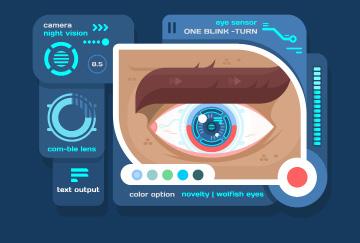
Relevance in Today’s World: As our globe rapidly evolves with advancements in Biomedicine, Microfabrication, Robotics, and Artificial Intelligence, the importance of STEM cannot be understated. Students will be equipped with the skills to navigate and shape this ever-changing landscape.
Skills for Tomorrow: Beyond academic excellence, the ability to interpret data, draw meaningful conclusions, and devise solutions to intricate problems are invaluable life skills in our tech-driven age.
Career-Forward Focus: STEM skills aren’t just knowledge; they’re the ticket to a prosperous future. With an evergrowing demand in the industry for STEM professionals, students are positioned at the forefront of the job market
Beyond the Classroom: This program is a mere glimpse into our comprehensive educational offering up to Year 10. From thrilling extra-curricular opportunities and interschool challenges to early university entrances and a dedicated wellbeing program tailored for high academic achievers, we’ve got it all.
Depending on partnership availability, students may undertake extension or enrichment projects in the following fields:
• Computer Science
• Astrophysics
• Electronic Engineering
• Chemical Engineering
• Neuroscience
• Medicine
• Cybersecurity
• Statistics
• Actuarial Science
• Operations Research
• Software/ Game/ App Development

• Artificial Intelligence
• Quantum Physics
• Architecture
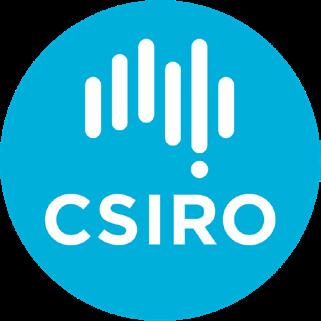
$50 per semester.
Optional: excursions at $75 per student per semester where available.
Selection for our STEM pathway is based on demonstrated academic excellence, a genuine interest in STEM, and a strong commitment to learning. We look for students who have excelled in their studies and shown a curiosity that aligns with the essence of STEM. Selective entry finalised by an interview with Mr Donovan.
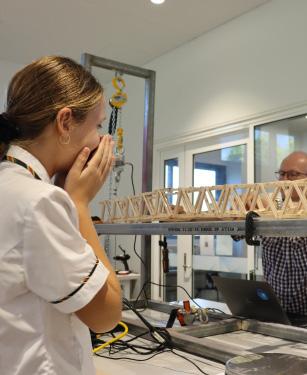

Not only are STEM Electives extremely popular in Years 11 and 12, they are the most difficult subjects as shown by QCAA scaling results. This program has several primary objectives:
• Engage students in the STEM fields where they show potential for success with the goal of more students studying STEM subjects in Years 11 and 12.
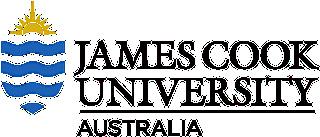

• Prepare students for the problem solving, critical thinking and technical rigour associated with senior STEM subjects.
• Allow students to explore a variety of different STEM fields they may not have otherwise explored.
• Enrich the experiences of students who have a special interest in any of the STEM fields.
• Extend the skills and capabilities of high performing students in the STEM fields.
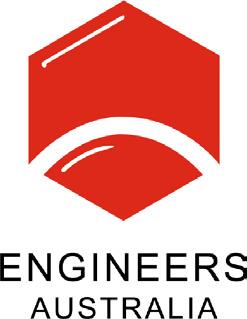
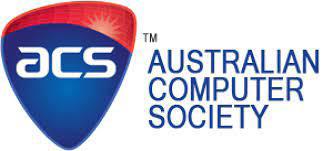
PREREQUISITES: Year 8 Engineering and Materials

Studying Engineering Materials in Year 9 offers several compelling reasons for students. Firstly, it fosters critical thinking and problem-solving skills which are valuable abilities to establish and maintain. Engineering encourages students to think analytically, devise creative solutions, and develop logical reasoning abilities. Secondly, it provides a hands-on experience in designing and constructing objects, enhancing practical skills and spatial awareness.
By working with materials, students gain a deeper understanding of their properties, applications, and environmental impact. This knowledge equips them to make informed choices about sustainable practices and materials selection in future projects. Overall, studying Engineering Materials in Year 9 empowers students with valuable skills, practical knowledge, and a solid foundation for future academic and professional pursuits in their educational journeys.
By studying Engineering Materials in Year 9, students can develop a strong foundation and passion leading into senior subjects such as Engineering, Aerospace and Design. The core skills developed throughout Year 9 and Year 10 are critical thinking, problem solving, creativity and innovation, spatial awareness, teamwork and collaboration, analytical and practical skills.
Having this foundation of knowledge will enable them to navigate more successfully through the senior subjects onto university aligned courses such as Engineering.

PREREQUISITES: Year 8 3D Design and Manufacturing
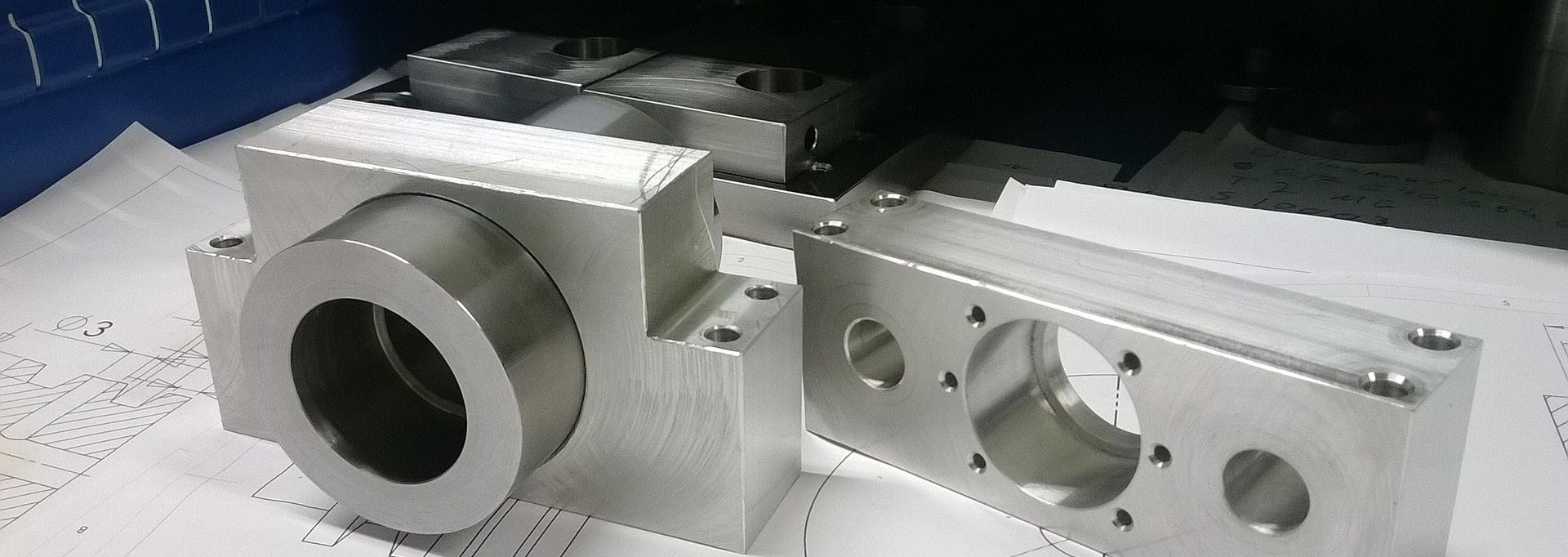
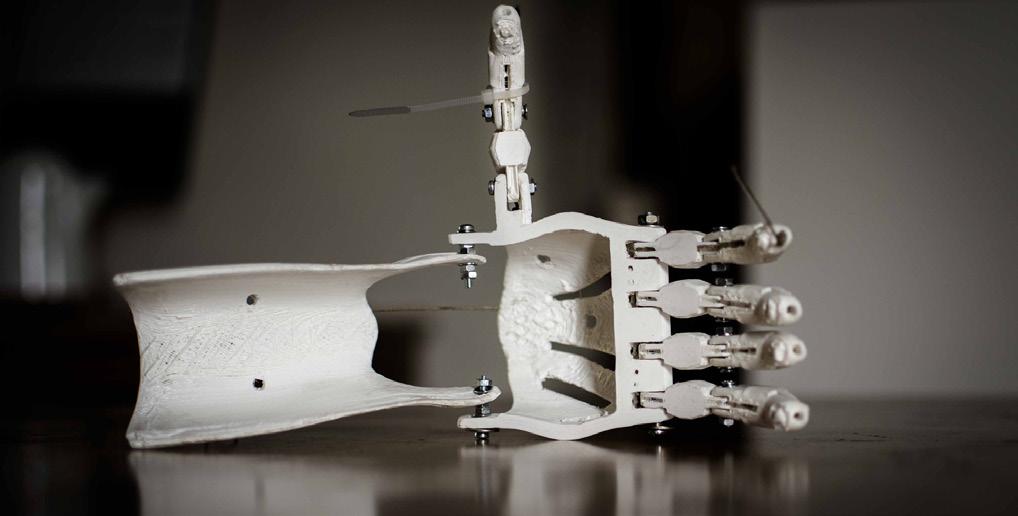
Studying 3D Design & Manufacturing in Year 9 offers numerous benefits to students. It nurtures creativity and critical thinking by providing hands-on experience in designing and bringing ideas to life.
Through this subject, students can explore innovative solutions to real-world problems, fostering their problemsolving skills. Moreover, 3D Design & Manufacturing introduces students to modern technology, such as computer-aided design (CAD) software and 3D printers, which are becoming increasingly prevalent in various industries.
Additionally, the subject encourages collaboration and teamwork, as students often work in groups to conceptualise, design, and manufacture their projects. Overall, studying 3D Design & Manufacturing empowers Year 9 students with creativity, technical skills, and a solid foundation for future opportunities in the ever-evolving world of design and technology.
By gaining proficiency in the design process, CAD and 3D printing, students will develop highly sought-after technical skills that can open doors to future careers in fields like engineering, product design, and architecture. For Senior subjects such as Design & Engineering, 3D Design & Manufacturing will lay the foundational skills to help the student proceed successfully.
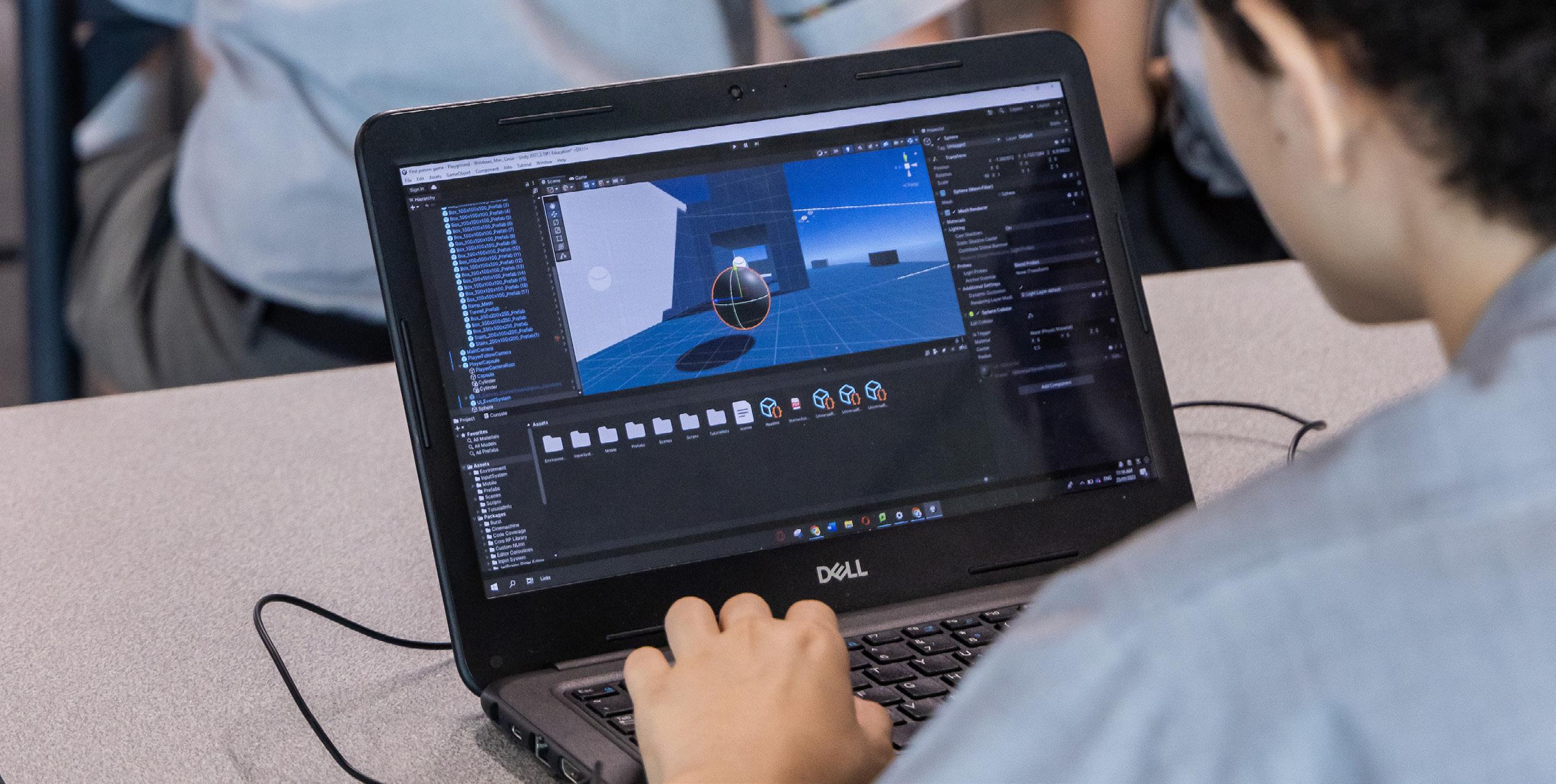
PREREQUISITES: Year 8 Robotics
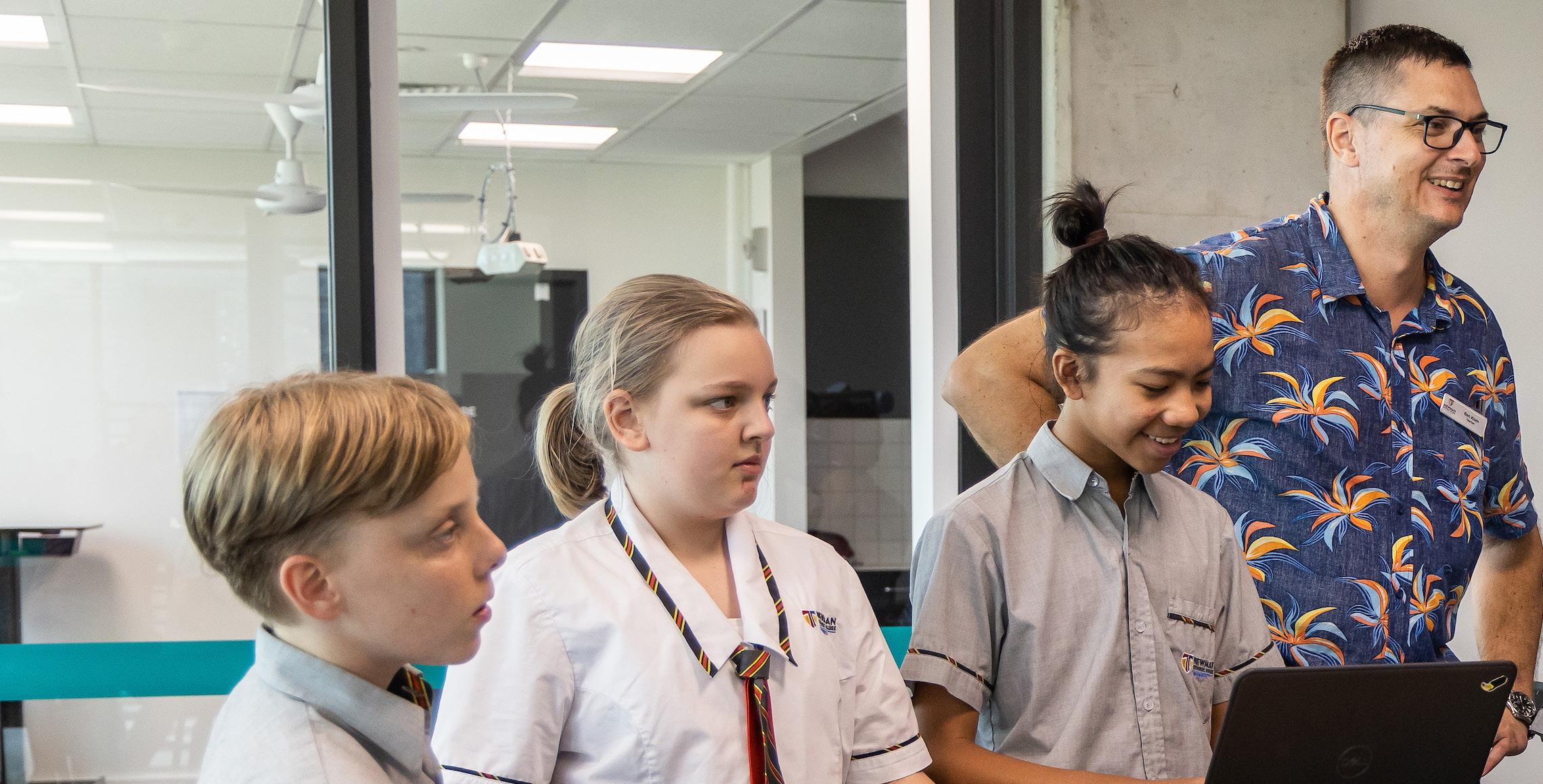

Robotics & Aviation is a unique and exciting learning experience that combines creativity, problem solving and technical skills. By engaging in robotics, students develop critical thinking and analytical abilities while applying concepts to real-world challenges. They learn to design and build robots, program them to perform specific task and work collaboratively in teams.
Robotics & Aviation not only nurtures their interest in STEM subjects but also equips them with essential skills for the future. In an increasingly automated world, studying robotics prepares students for a wide range of career opportunities including engineering, computer science and technology related fields. By exploring Robotics at an
early stage, students gain valuable hands-on experience, enhance their future prospects and become innovative thinkers in a rapidly evolving technological time. In addition to Robotics. Newman Catholic College has the latest technology for the students to enhance their skills with. Vex robotic brains are used to program and operate 9-volt motors and incorporate sensors for automatic control. The College has an industrial grade robotic arm to simulate production line aspects and is adapting curriculum into programmable drones. Drones are becoming an efficient way for industries to maximise their potential and is an opportunity to showcase foundation skills of aviation moving forward into Years 11 and 12 offered subject, Aerospace.
Robotics & Aviation in Year 9 serves as a crucial foundation for students interested in pursuing senior Robotics and Aerospace. It provides them with fundamental knowledge and skills that can be built upon in subsequent years. It contributes to the growth in Technical Skills, ProblemSolving Abilities, Teamwork and Collaboration, Conceptual Understanding, Continuity and Progression.
$25 per semester.
Optional:
Excursion: There will be an opportunity to attend a Robotics & Aviation excursion at an additoinal cost. Approx $50 per semester.

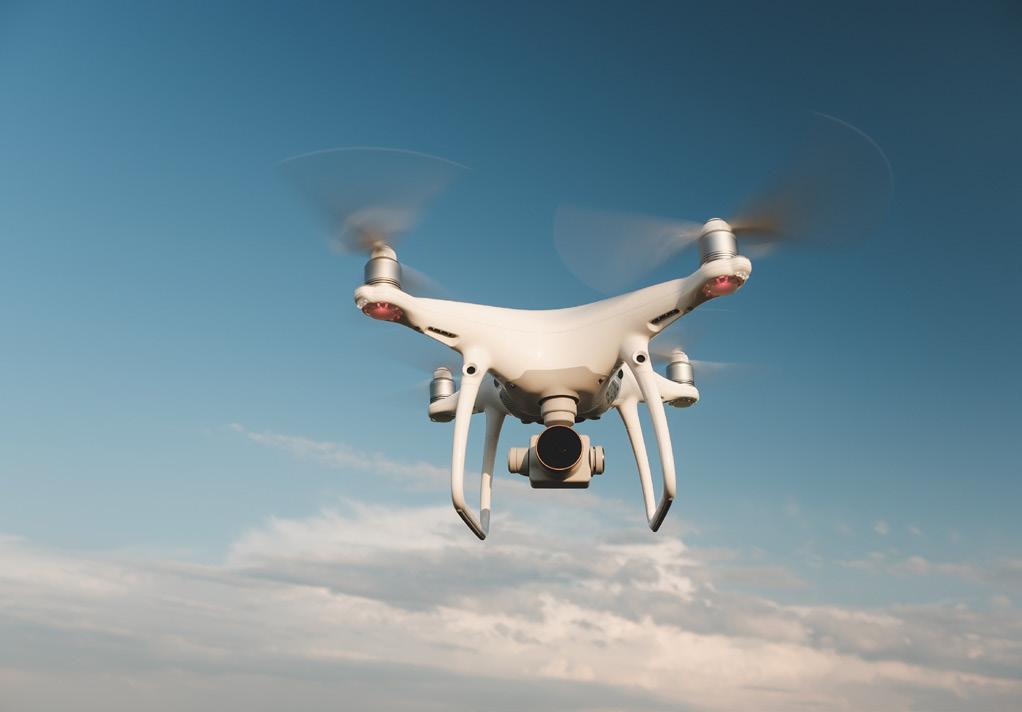
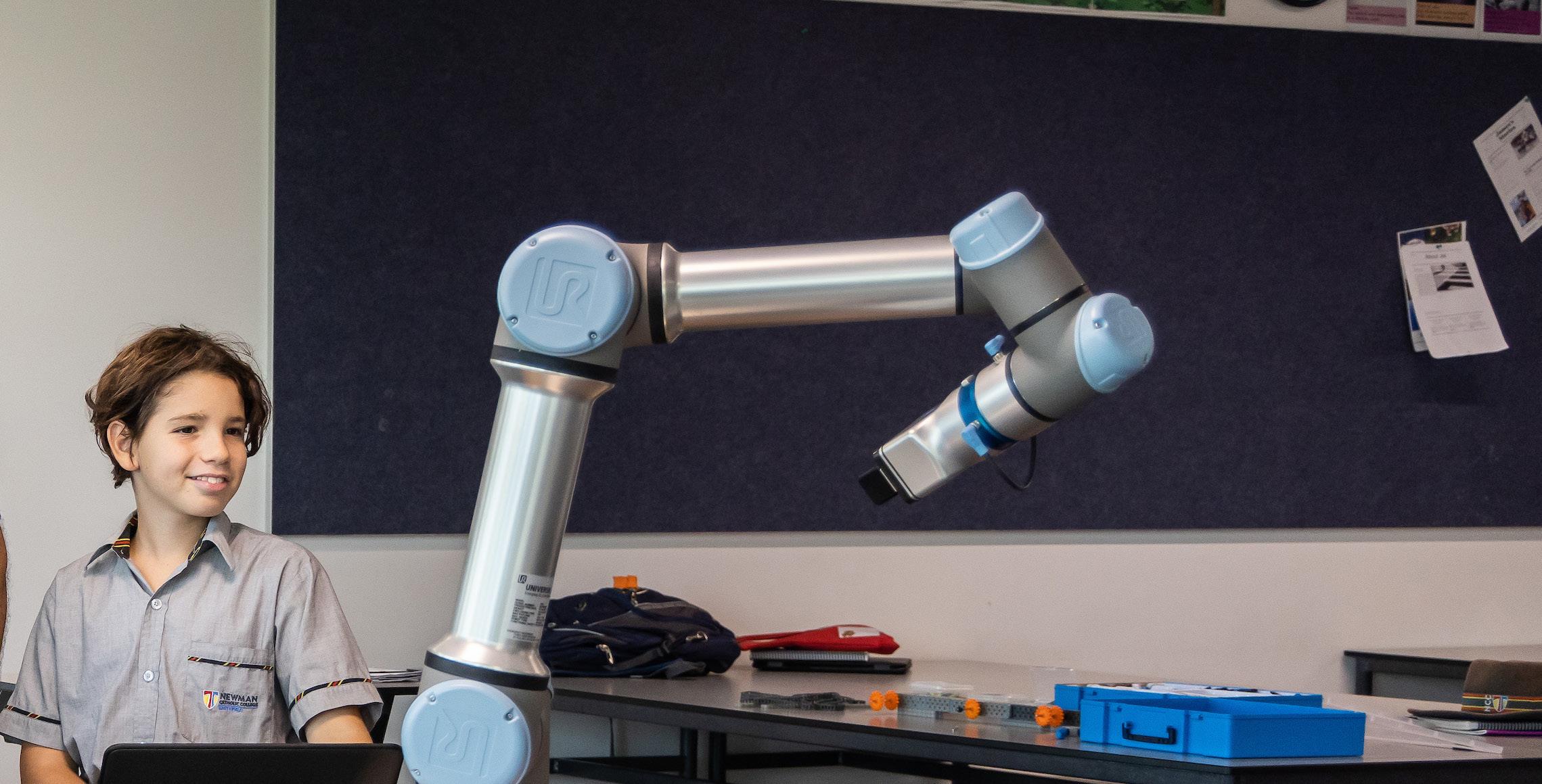
PREREQUISITES: Year 7 or 8 Digital Technologies

Digital Technologies are an integral part of our modern world and studying them offers invaluable benefits. By engaging with Digital Technologies, students gain essential skills that are highly relevant in today’s workforce. These skills include critical thinking, problem-solving, creativity, and collaboration. Additionally, studying Digital Technologies cultivates digital literacy, ensuring students can navigate and use technology effectively and responsibly. Moreover, it equips them with the ability to adapt to the ever-evolving technological landscape.
Understanding Digital Technologies empowers students to become active participants in the digital age, enabling them to leverage technology for learning, communication, and innovation. Ultimately, studying Digital Technologies at Newman Catholic College prepares students for a future that is increasingly driven by technology, equipping them with the skills and knowledge necessary to thrive in our digital society.
By the end of Year 10, students will develop and modify innovative digital solutions, decompose real-world problems, and critically evaluate alternative solutions against stakeholder elicited user stories. Students acquire, interpret and model complex data with databases and represent documents as content, structure and presentation.
They design and validate algorithms and implement them, including in an object-oriented programming language. Students explain how digital systems manage, control and secure access to data; and model cyber security threats and explore a vulnerability. They use advanced features of digital tools to create interactive content, and to plan, collaborate on, and manage agile projects. Students apply
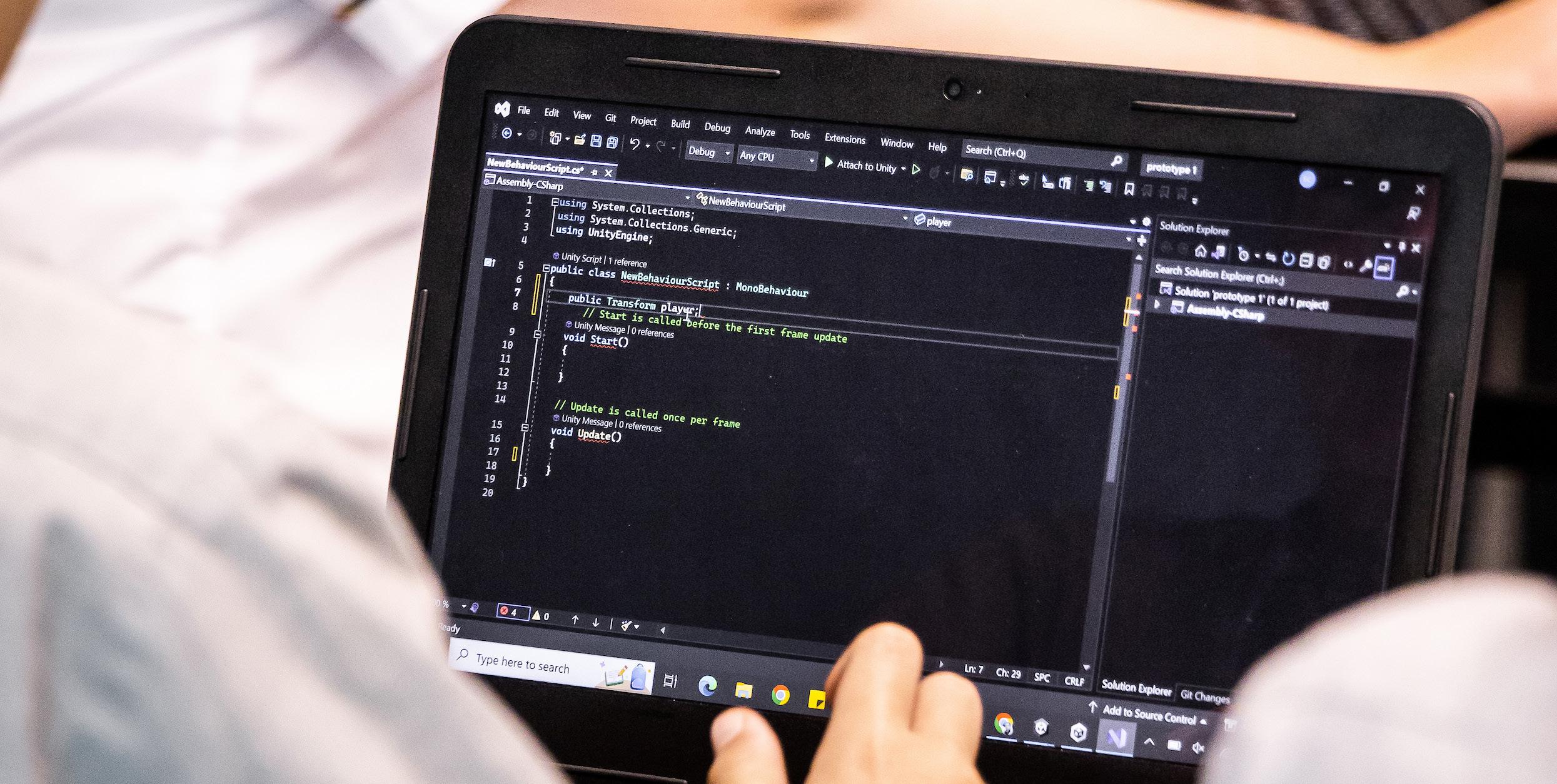
privacy principles to manage digital footprints.
Students who complete Digital Technologies in Year 9 and 10 can continue into Digital Solutions (General). Digital Solutions is eligible to contribute to ATAR in Year 12. In Year 9 and 10, students will be assessed by submission of technical proposals, digital solution projects and examinations to prepare them for senior assessment. After high school, students have opportunities in Information Technology including Cybersecurity, Software Engineering, Network Administration and Software Development.
PREREQUISITES: Year 7 or 8 Food Technology
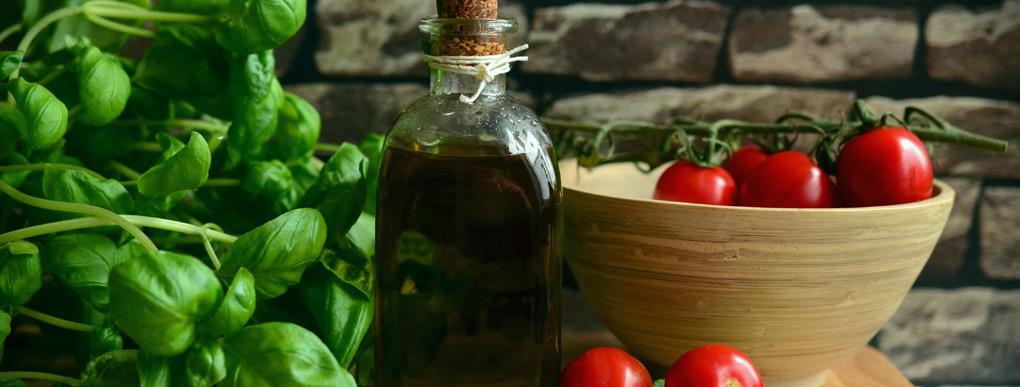
Food Technology equips students with valuable life skills and knowledge. In an increasingly health-conscious world, understanding food and nutrition is crucial for making informed choices. Food Technology provides an opportunity to learn about balanced diets, food safety, and sustainable practices, enabling students to make healthier choices for themselves and their communities. Additionally, it fosters creativity and innovation by teaching students how to experiment with flavours, textures, and presentation techniques. It also develops important practical skills such as meal planning, food preparation, and cooking techniques, empowering students to become more self-reliant in the kitchen. Furthermore, studying Food Technology can inspire a passion for culinary arts and potentially open doors to diverse career paths in the food industry, catering, nutrition, or even entrepreneurship. Overall, Food Technology offers a well-rounded education that promotes healthy living, practical skills, creativity, and potential career opportunities.
Food Technology becomes the stepping stone for senior Food Technology courses, where students delve deeper into advanced topics. They can explore more complex culinary techniques, develop their understanding of food science, experiment with recipe modification, and engage in critical analysis of food products and their impact on health and society.
Year 9 Food Technology also helps students develop essential practical skills, such as time management, teamwork, problem-solving, and effective communication, which are transferable to senior food technology and beyond COST PER STUDENT
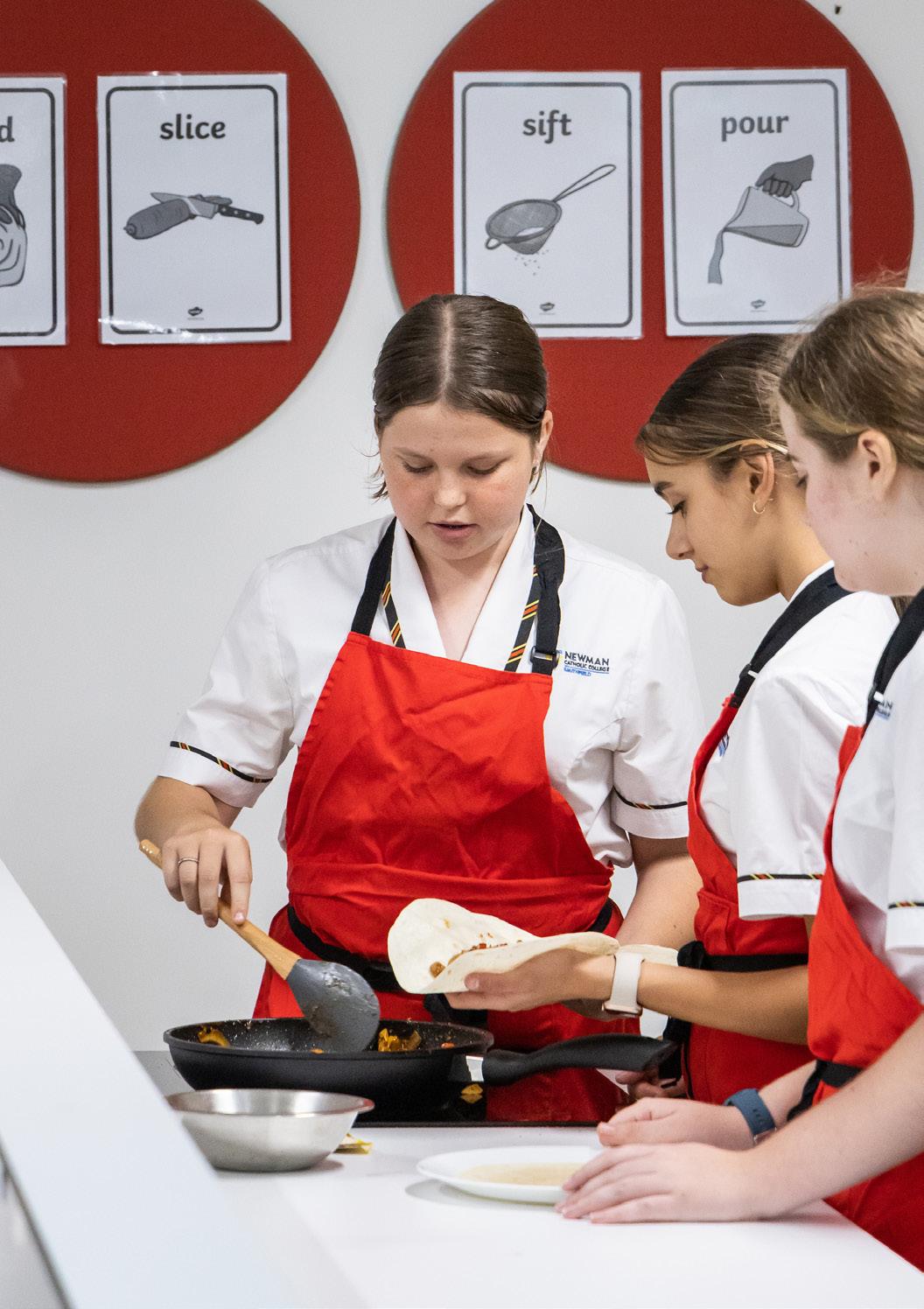
$50 per semester.
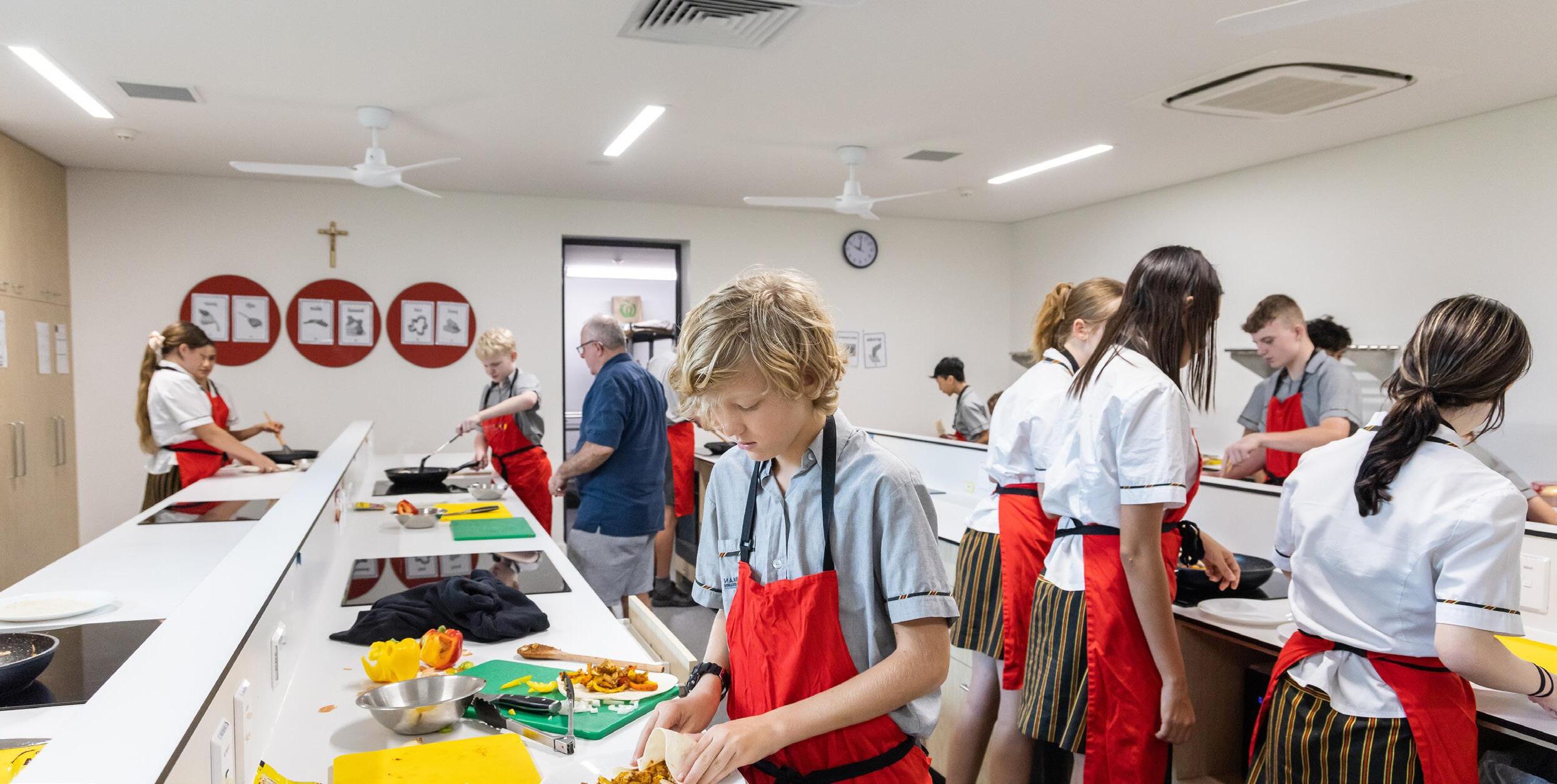
Studying Textiles offers numerous benefits for Year 9 students. Firstly, it nurtures creativity and self-expression, allowing students to explore their artistic abilities and develop unique design skills. By engaging in handson activities like sewing, patternmaking, and fabric manipulation, they enhance problem-solving and critical thinking abilities. Textiles also foster practical skills such as sewing techniques and garment construction, enabling students to create functional and wearable items.
Studying Textiles promotes an understanding of sustainable practices, encouraging students to consider the environmental impact of their choices in the fashion industry. Additionally, it cultivates an appreciation for cultural diversity, as students explore the rich history and traditions of textile art from various cultures worldwide.

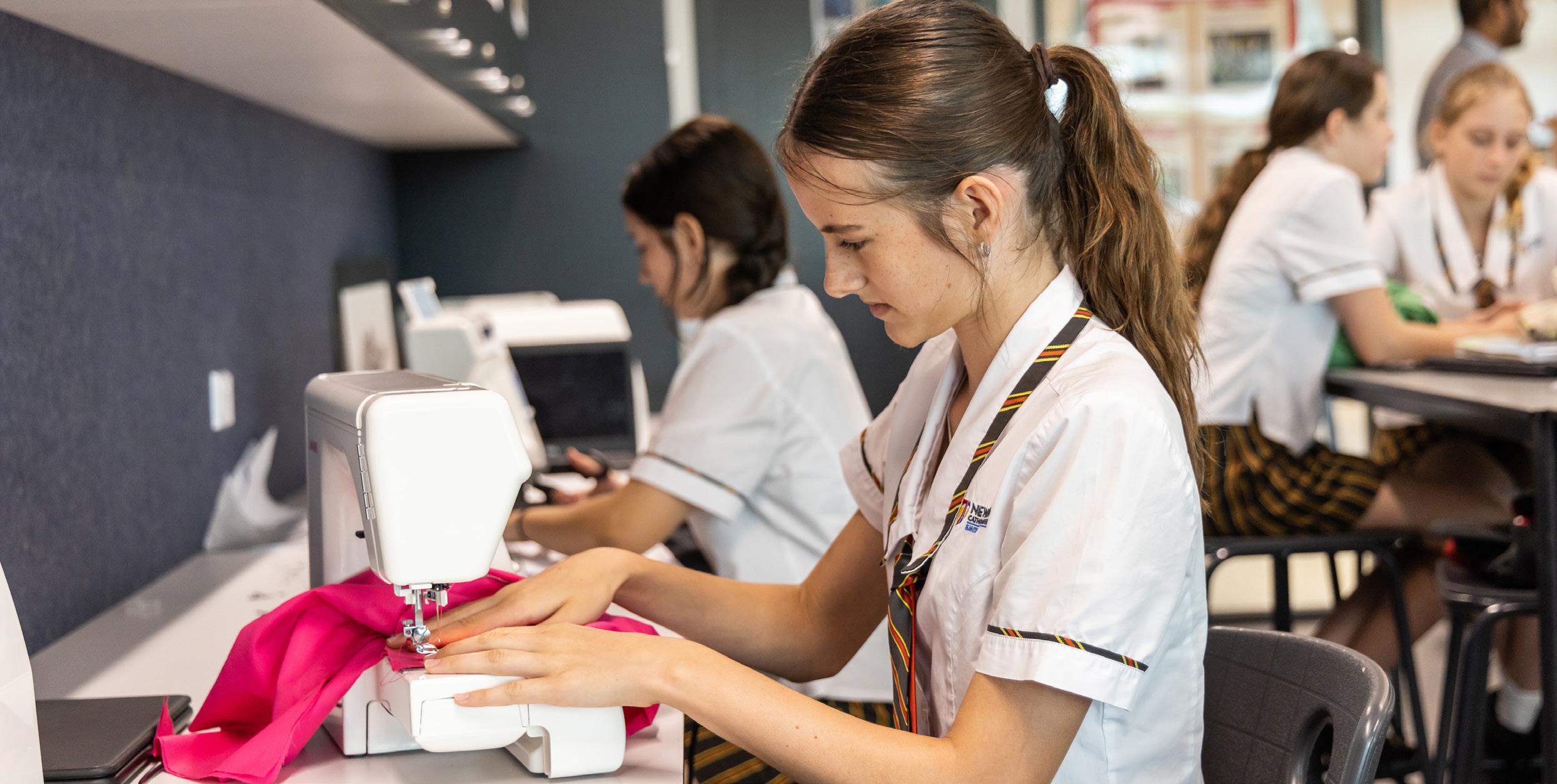
Year 9 Textiles serves as a strong foundation for students looking to advance to senior Textiles. It provides students not only with a comprehensive understanding of fundamental textile techniques, but it cultivates creativity and design thinking allowing students to develop their own personal style.
This knowledge and understanding will help contribute to more complex and intricate projects that incorporate the use of CNC machines such as laser cutters and 3D printers in QCAA senior.
COST PER STUDENT
$50 per semester.
PREREQUISITES: NIL


Financial Mathematics has a significant role in developing consumer and financial literacy in young people. Mathematics is the foundation of the financial world. Financial Mathematics focuses on applying mathematical formulas and equations to financial problems, market modelling and data analysis. With this strategy, financial professionals can better understand business performance, including profitability and growth potential.
Financial Mathematics entails the assessing and interpretation of various mathematical terms such as graphs, tables, charts, calculations, problem-solving and many more. Industries are also looking for capable and efficient employees who can invest their efforts as well as their skills to make their business successful. Finance is the most imperative part of a business, wanting perfection and efficiency to manage budgets, investments, employee salaries and other products.
In Year 9, students will learn to:
• Use mathematical modelling to solve practical problems, involving rational numbers and percentages, including financial contexts; formulate problems, choosing representations and efficient calculation strategies, using digital tools as appropriate.
• Interpret and communicate solutions in terms of
the situation, justifying choices made about the representation; to solve applied problems involving growth and decay, including financial contexts; formulate problems, choosing to apply linear, quadratic or exponential models; interpret solutions in terms of the situation; evaluate and modify models as necessary and report assumptions, methods and findings.
• Modelling situations that involve percentage increases or decreases and explaining why it is an increase or decrease, such as mark-ups, discounts, Goods and Services Tax, changes in populations or recycling rates.
• Modelling and solving problems involving financial contexts using linear functions; modelling situations that involve working with authentic information, data and interest rates to calculate compound interest and solve related problems.
As an enrichment subject, Financial Mathematics attempts to engage students in a program of mathematical studies focused wholly on demonstrating how mathematics knowledge and skills can be applied in a real world setting. While the subject does not articulate directly into a senior course of study, the skills gained and numerical processes refined would be beneficial for all levels of senior mathematics.
PREREQUISITES: C Grade or better in Year 8 Japanese
Studying Japanese opens a world of exciting opportunities and benefits. Japan is a major part of the Asian/Oceanic economy, making Japanese language skills highly sought after for international business and trade.

Proficiency in Japanese can lead to enhanced career prospects in Queensland in the tourism and trade industries. Additionally, Japanese culture, with its rich history, traditions, and vibrant pop culture, has captivated people worldwide. By studying Japanese, you gain deeper insights into this fascinating culture, enabling you to appreciate its art, literature and cinema on a whole new level. Finally, learning Japanese fosters cognitive skills, improving memory, concentration, and problemsolving abilities. Embark on a journey of discovering with Japanese!
Some of the topics and skills covered during the year will include:
• Initiating and sustaining exchanges of ideas and experiences about their own and others’ personal world.
• Collaboration in Japanese to plan and reflect on activities and College events.
• Interpreting and analysing information from Japanese texts about school life in Japan, popular culture and Japanese history.
• Synthesising information and responding in Japanese or English around topics such as recipes, anime and advertisements.
• Create Japanese texts in diary entries, manga strips and emails to other students.
• Investigating Japanese cultural significance of respect and the behavioural aspects of the culture.
Students will be given opportunities to engage with Japanese visitors to the College and project-based learning experiences.
Students who choose Japanese in Year 9 and 10 will do the subject the entire year for both Year 9 and Year 10. This is a requirement for students to be fluent in Year 11 and 12 to successfully complete the course.
Students who complete the two years of study in Year 9 and 10 can continue into Senior Japanese (General). Senior Japanese is eligible to contribute to ATAR in Year 12.

In studying Japanese, students will learn language conventions, grammar, and vocabulary around the units:
• My World
• Exploring our world
• Our society
• My future COST PER STUDENT
PREREQUISITES: C Grade or better in Year 8 French
Studying French opens a world of exciting opportunities and benefits. France is a major part of the European economy, making French language skills highly sought after for international business and trade. French can lead to jobs in the business, hospitality, law, science, technology, sociology and education industries. French is part of the Francophone world, spoken in 32 countries with 321 million French speakers found across North America, Europe, Africa and Oceania. There are around 25,000 French words in the English language strengthening literacy and understanding of etymology (origin of words). Additionally, French culture, with its rich history, traditions, and cuisine has captivated people worldwide. By studying French, you gain deeper appreciation of its art, literature, cinema and connections to world history. French enables the reflection on pronunciation and spelling and also culture. Finally, learning French fosters cognitive skills, improving memory, concentration, and problem-solving abilities. Expand your mind and embrace a new language. Bienvenue!
In Years 9 and 10, French language learning builds on each student’s prior learning and experiences. Students use French to initiate and sustain interactions while sharing their own and others’ experiences of the world. They listen, speak, read and view, and write to communicate with other speakers of French in local and global settings through authentic community and online events. They continue to receive guidance, modelling, feedback and support from peers and teachers. Students use authentic and purposedeveloped resources, increasingly of their own choice, to access and/or create a range of spoken, written and multi-modal texts which may include textbooks, audio and video clips, magazines, online and print articles, and social media. They acknowledge that there are diverse influences
on ways of communication and cultural identity, and that these influences can shape their own behaviours, values and beliefs.
Students who choose French in Year 9 and 10 will do the subject the entire year for both Year 9 and Year 10. This is a requirement for students to be fluent in Year 11 and 12 to successfully complete the course.


Students who complete the two years of study in Year 9 and 10 can continue into Senior French (General). Senior French is eligible to contribute to ATAR in Year 12.
In studying French, students will learn language conventions, grammar, and vocabulary around the units:
• My World
• Exploring our world
• Our society
• My future COST PER STUDENT
PREREQUISITES: C Grade or better in Year 8 Italian
Learning Italian in Year 9 is a valuable addition to the Australian Curriculum, providing students with numerous benefits both academically and culturally. Firstly, Italian is one of the major languages spoken globally, allowing students to connect with millions of speakers and fostering a deeper appreciation for cultural diversity. By studying Italian, students can engage in meaningful crosscultural interactions, opening up opportunities for future international collaborations and fostering a greater sense of global citizenship. Moreover, Italy’s rich history, art, and literature offer an enriching cultural experience that can spark students’ curiosity and broaden their understanding of the world. Through exploring Italian masterpieces, students gain insights into a diverse cultural heritage that spans centuries, promoting a sense of historical perspective and critical thinking.
In addition to the cultural and cognitive advantages, learning Italian in Year 9 can have practical benefits for future career prospects. Italy is a prominent player in various industries, including fashion, design, culinary arts, and tourism. Familiarity with the Italian language and culture can open doors to job opportunities in these sectors, providing students with a competitive edge in the global job market. Furthermore, learning a second language like Italian enhances cognitive abilities, such as problem-solving and multitasking, while improving memory and creativity. It encourages students to think flexibly and adapt to different linguistic structures, honing their communication skills in both English and Italian. By investing in Italian language education, Year 9 students not only gain linguistic proficiency but also enrich their lives with the enduring beauty of Italian culture and strengthen their preparedness for future endeavors.
Some of the topics and skills covered during the year will include:
• Initiating and sustaining exchanges of ideas and experiences about their own and others’ personal world.
• Collaboration in Italian to plan and reflect on activities and school events.
• Interpreting and analysing information from Italian texts about school life in Italy, popular culture and Italian history.
• Synthesising information and responding in Italian or English around topics such as recipes, stories and advertisements
• Create Italian texts in diary entries, short stories and emails to other students.
• Investigating Italian cultural significance of respect and the behavioural aspects of the culture
Students who choose Italian in Year 9 and 10 will do the subject the entire year for both Year 9 and Year 10. This is a requirement for students to be fluent in Year 11 and 12 to successfully complete the course.
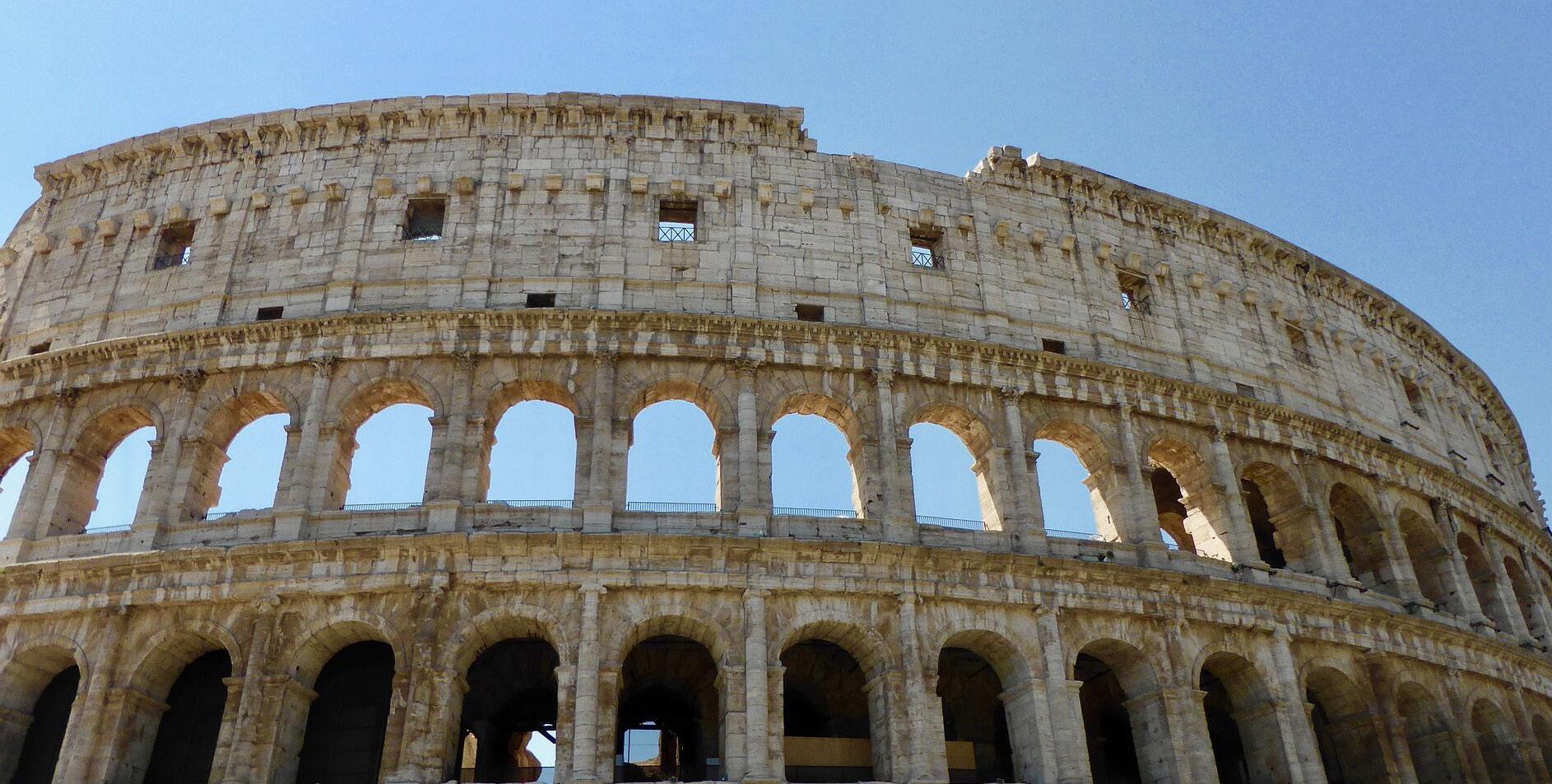
Students who complete the two years of study in Year 9 and 10 can continue into Senior Italian (General). Senior Italian is eligible to contribute to ATAR in Year 12.
In studying Italian, students will learn language conventions, grammar, and vocabulary around the units:
• My World
• Exploring our world
• Our society
• My future
PREREQUISITES: Nil
Learning Mandarin in Year 9 is a valuable addition to the Australian Curriculum, providing students with numerous benefits both academically and culturally. Firstly, Mandarin is one of the major languages spoken globally, allowing students to connect with millions of speakers and fostering a deeper appreciation for cultural diversity. By studying Mandarin, students can engage in meaningful cross-cultural interactions, opening up opportunities for future international collaborations and fostering a greater sense of global citizenship. Moreover, China’s rich history, art, and literature offer an enriching cultural experience that can spark students’ curiosity and broaden their understanding of the world. Through exploring Mandarin masterpieces, students gain insights into a diverse cultural heritage that spans centuries, promoting a sense of historical perspective and critical thinking.
In addition to the cultural and cognitive advantages, learning Mandarin in Year 9 can have practical benefits for future career prospects. China is a prominent player in various industries, including fashion, design, culinary arts, and tourism. Familiarity with the Mandarin language and culture can open doors to job opportunities in these sectors, providing students with a competitive edge in the global job market. Furthermore, learning a second language like Mandarin enhances cognitive abilities, such as problem-solving and multitasking, while improving memory and creativity. It encourages students to think flexibly and adapt to different linguistic structures, honing their communication skills in both English and Mandarin. By investing in Mandarin language education, Year 9 students not only gain linguistic proficiency but also enrich their lives with the enduring beauty of Mandarin culture and strengthen their preparedness for future endeavors.
Some of the topics and skills covered during the year will include:
• Initiating and sustaining exchanges of ideas and experiences about their own and others’ personal world.
• Collaboration in Mandarin to plan and reflect on activities and school events.
• Interpreting and analysing information from Mandarin texts about school life in China, popular culture and Mandarin history.
• Synthesising information and responding in Mandarin or English around topics such as recipes, stories and advertisements
• Create Mandarin texts in diary entries, short stories and emails to other students.
• Investigating Mandarin cultural significance of respect and the behavioural aspects of the culture
Students who choose Mandarin in Year 9 and 10 will do the subject the entire year for both Year 9 and Year 10. This is a requirement for students to be fluent in Year 11 and 12 to successfully complete the course.

Students who complete the two years of study in Year 9 and 10 can continue into Senior Mandarin (General). Senior Mandarin is eligible to contribute to ATAR in Year 12.
In studying Mandarin, students will learn language conventions, grammar, and vocabulary around the units:
• My World
• Exploring our world
• Our society
• My future COST PER STUDENT
PREREQUISITES: NIL
Studying Service Leadership in Years 9 and 10 offers student’s numerous benefits, including:
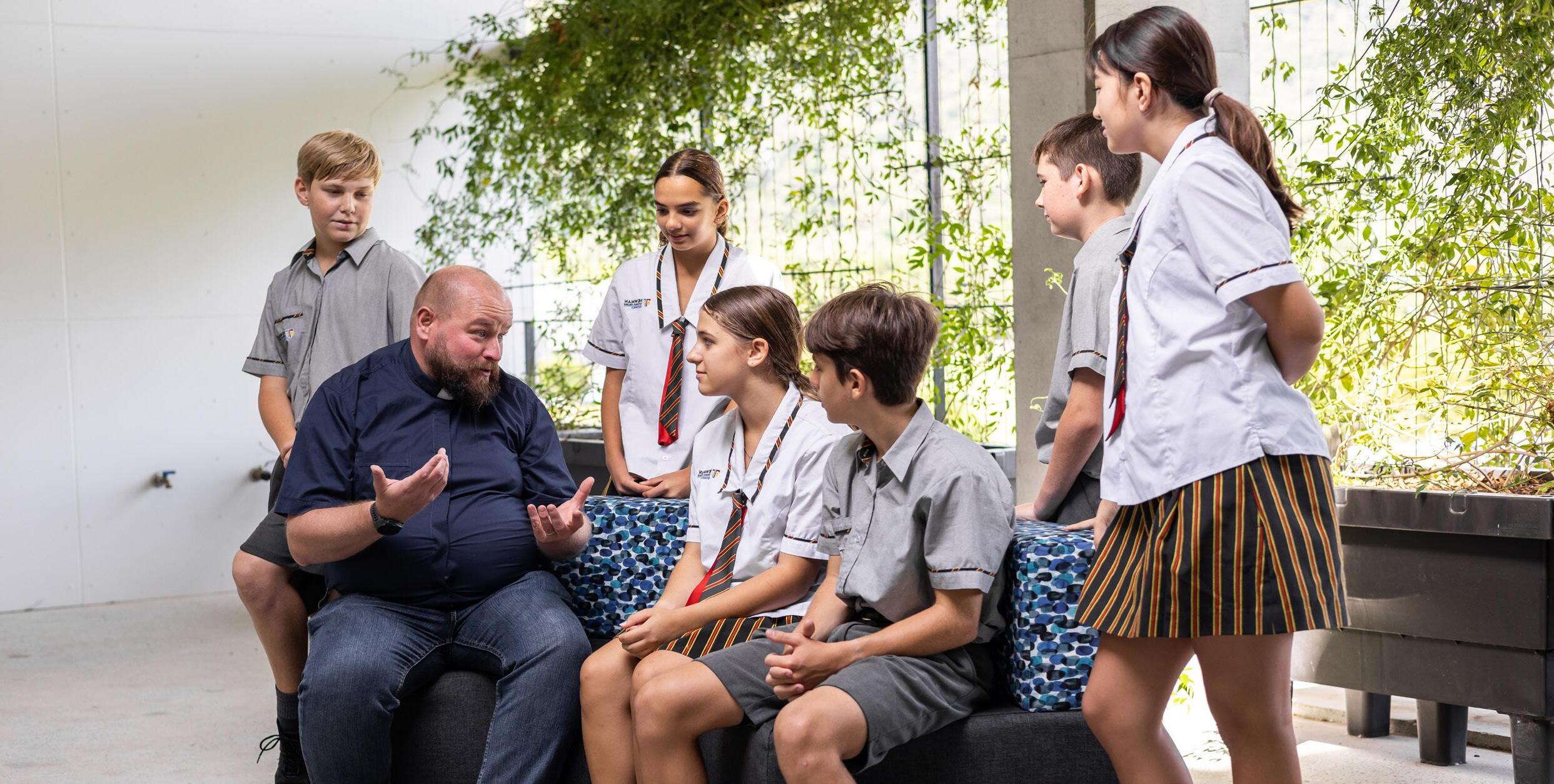
• Be able to employ a Catholic worldview when examining issue of local, national, and global significant.
• Develop critical and creative thinking skills.
• Apply Christian ethics and morality to a range of contexts and situations.
• Apply Catholic Social Teaching principles to practical decision making.
• Foster personal growth by building leadership skills through collaboration with others.
• Learn how to engage in meaningful dialogue with a range of ideas and opinions.
• Create change through inquiry and action based learning.
Catholic Leadership Studies combines communication skills and critical literacy with an understanding of the world, both past and present and looks to the future through sustainable social, environmental, and spiritual stewardship.
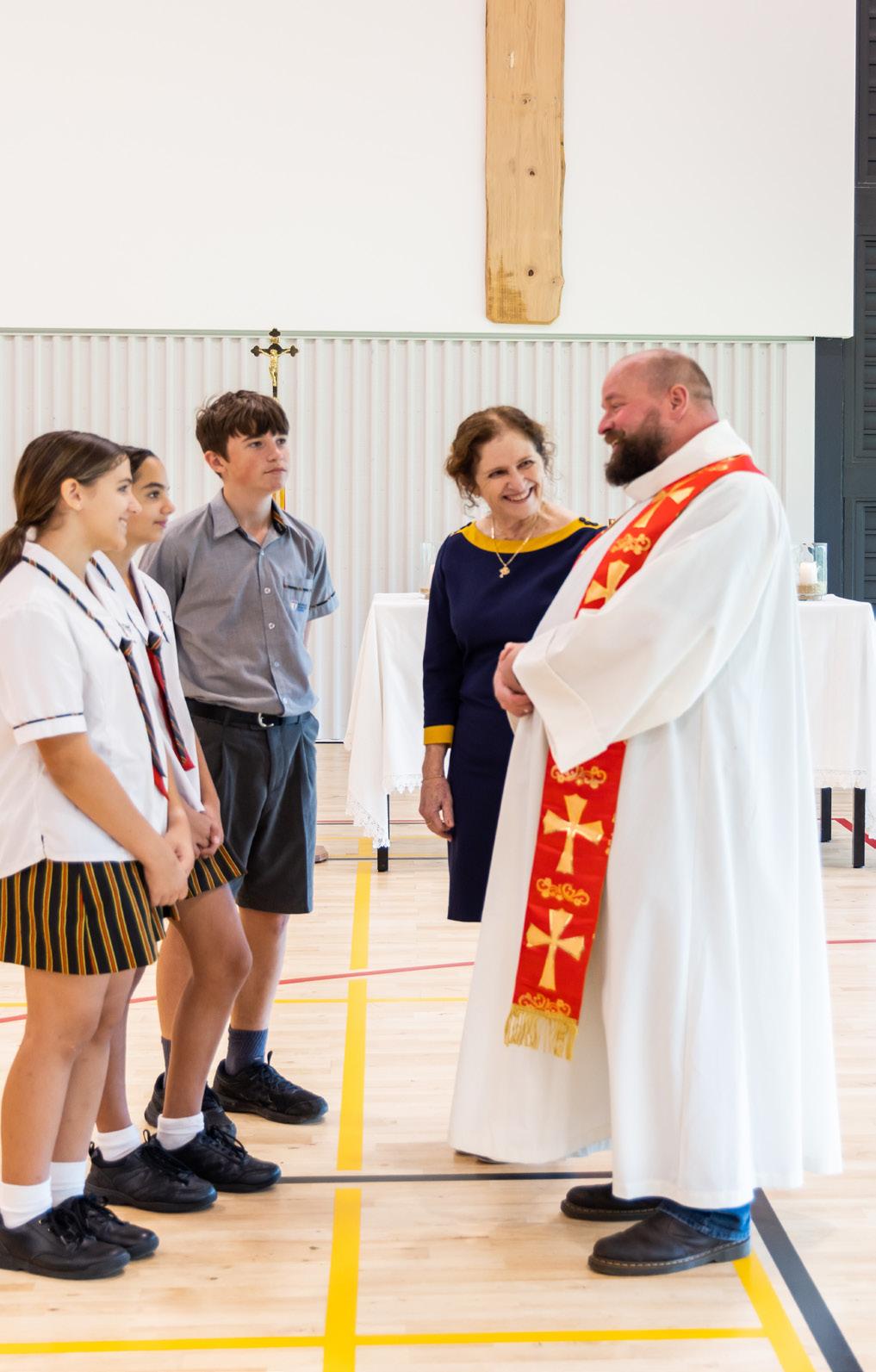
Students will develop a critical understanding of texts, focus on how people, through their choices and actions, are connected to places throughout the world, and investigate significant individuals and groups who have caused changed through socio-political ideas.
Students will think globally, whilst acting locally through outreach and social justice activism that aspires to create real change in the community based on the principles of subsidiarity and participation.
Incorporates aspects of English, History, Geography, Religion and Ethics, Study of Religion, and Catholic Faith in Action.
PREREQUISITES: NIL

Studying Music Industry Skills in Years 9 and 10 offers student’s numerous benefits, including skill development, personal expression, teamwork, discipline, cultural appreciation, confidence building, cognitive development, emotional well-being, within a music technology focus. Engaging with music during this period allows students to refine their technical abilities and express themselves creatively. It teaches teamwork, discipline, and time management skills, while also fostering cultural awareness and empathy. Music performance boosts confidence, cognitive abilities, and emotional well-being. Additionally, incorporating a music technology focus introduces students to the intersection of music and technology, providing hands-on experience with modern production tools and preparing them for careers in music production, sound engineering, and related fields. Overall, studying Music Industry Skills in Years 9 and 10 enriches student’s education and equips them with valuable skills and knowledge for a wide range of personal and professional pursuits.
Comprised into four modules, this course is designed to introduce students to the basics of digital music production. In Module 1, students learn about beats, notes, scales, melodies, chords, and basslines through practical activities. Module 2 explores making music from found sounds, using everyday noises and sampling techniques. In Module 3, students create mashups by combining two songs into one unique piece. Module 4 focuses on creating soundtracks for still images or short video clips. Throughout the modules, students develop skills in music organization, digital composition, and collaboration. The ACARA Year 9 and 10 standard elaborations descriptors ensure students gain an understanding of fundamental concepts, apply techniques,
analyse examples, and reflect on their work. This course accommodates diverse skill levels and backgrounds, providing opportunities for creative expression and growth in music production.
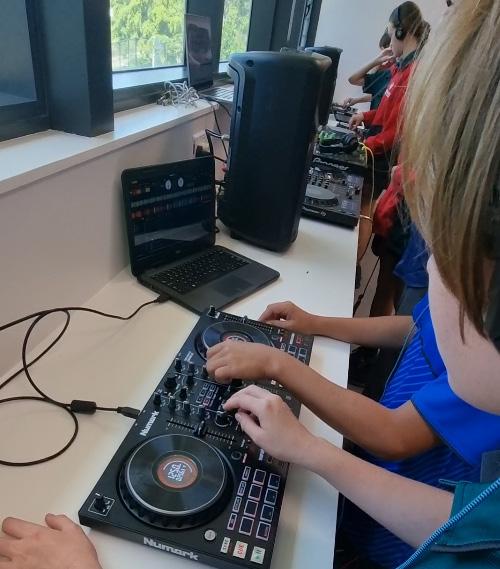
Elective music courses align with senior music courses and it involves developing foundational knowledge in music theory, composition, performance, and musicological analysis. Assessments include tasks requiring students to analyse, evaluate, apply, perform and create music at increasing levels of complexity, promoting progression in musical skills and understanding.
$25 per semester.
PREREQUISITES: Year 7 Compulsory Music
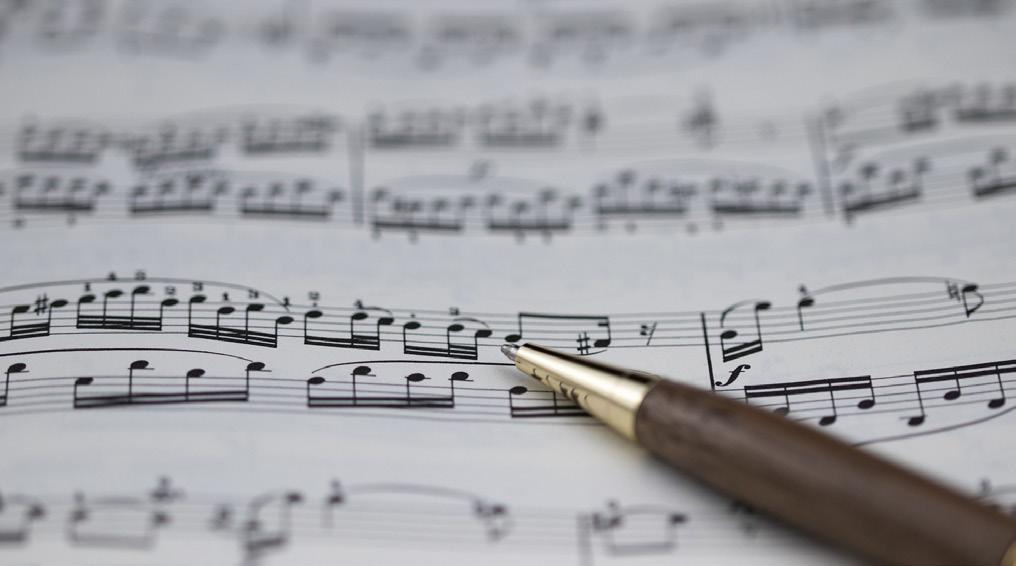
Studying Music provides a comprehensive musical education, develops skills, offers performance opportunities, promotes collaboration and teamwork, prepares students for college and careers, enriches cultural understanding, encourages personal growth and expression, offers academic benefits, and fosters lifelong enjoyment of music.
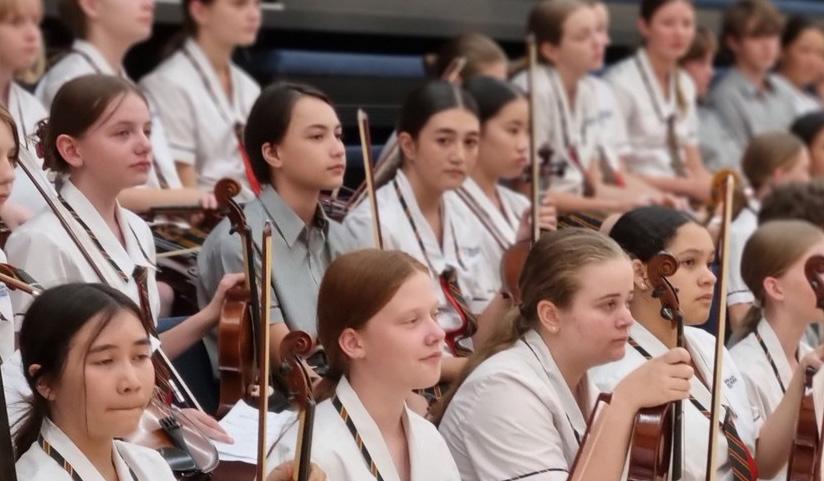
Students focus on developing performance skills through ensemble playing and refining instrumental or vocal abilities. They explore music theory, composition, and utilise music technology for recording and production. Students study music from diverse cultures and historical periods, analysing its features and social significance. They investigate various musical styles and genres, identifying characteristics and influences, and explore music’s communicative power. Critical listening skills are developed through music analysis of form, structure, instrumentation, and expression. Students engage in expanding their performance opportunities, interpretive skills, stage presence, and communication. This course combines performance, composition, technology, cultural exploration, and analysis for a comprehensive musical experience.
Aligned with senior music courses, elective music courses aim to develop foundational knowledge in music theory, composition, performance, and musicological analysis. Assessments in these courses encompass tasks such as analysing, evaluating, applying, performing, and creating music at increasing levels of complexity. Students are challenged to progress in their musical skills and understanding through these assessments.
The course covers topics such as music theory, where students explore concepts like harmony, counterpoint, and form. They also engage in composition, honing their creative abilities and learning different techniques and structures. Performance plays a significant role, allowing students to refine their instrumental or vocal skills through practice and public presentations. Additionally, musicological analysis helps students understand music within cultural and historical contexts.
By undertaking assessments that involve critical analysis, practical application, performance, and composition,
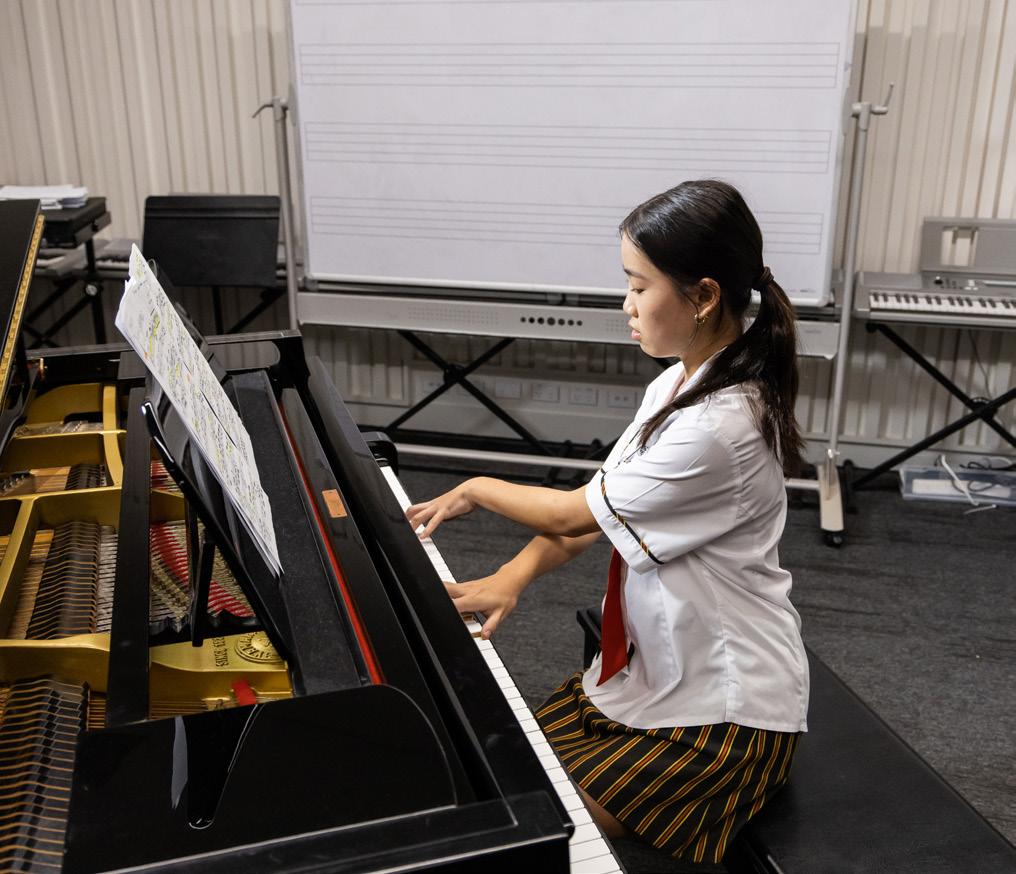
students develop their musical abilities and deepen their understanding of music as an art form. These courses provide a comprehensive music education experience, fostering growth and exploration in various aspects of music.
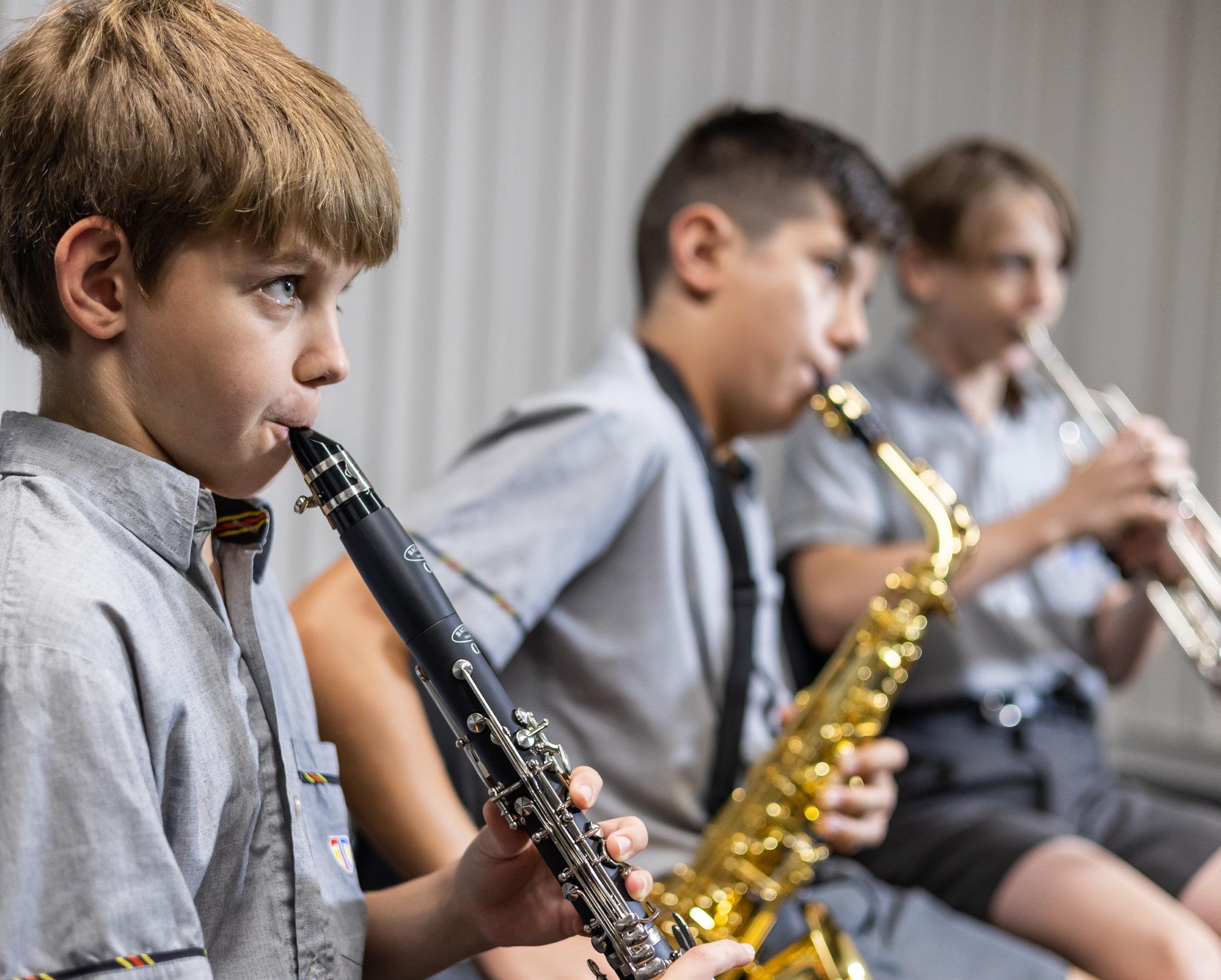
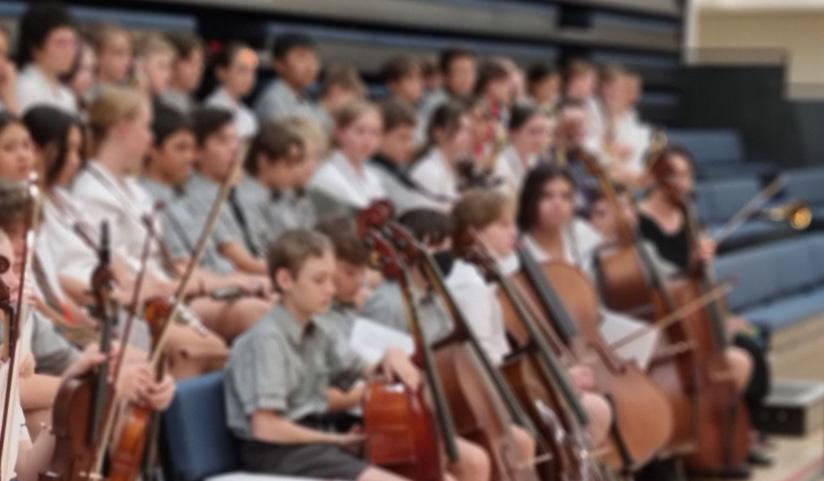
NIL
Optional: There will be an opportunity to attend a music perfomance at CPAC or similar. Approx cost $50.
PREREQUISITES: Year 7 or 8 Visual Arts


The Visual Arts course offers a comprehensive exploration of artistic expression, focusing on both creating and responding to artworks. Students draw inspiration from the world around them to generate ideas and develop essential skills, techniques, and processes in various art forms. They critically reflect on their own experiences and responses to artist’s works, enhancing their artistic knowledge and preferences. The practical component involves creating representations of ideas in 2D, 3D, and 4D forms, while responding entails evaluating their own and others’ artworks. Through this course, students gain a deeper understanding of how artists engage audiences and convey meaning, fostering creativity and appreciation for the visual arts.
In the Visual Arts course, students will explore a diverse range of artistic expressions in Year 9 and 10. Year 9 introduces painting, sculpting, stencilling, and clay, providing opportunities to experiment with different materials and techniques. Units may include students creating expressive artworks on canvas, mold threedimensional forms, design intricate stencils, and work with versatile clay to craft functional and decorative pieces. In Year 10, the course expands to include Mixed Media, combining collage, drawing, and printing to produce unique two-dimensional art, along with exploring threedimensional time-based video artworks. Additionally, students will be challenged to develop their own personal aesthetic by the end of Year 10. Throughout the course, experienced instructors will guide students, nurturing their creativity and helping them develop a deeper appreciation for various art forms.
The Visual Arts course fosters core skill development through active engagement with various art forms and techniques. Students explore painting, sculpting, stencilling, and clay in Year 9, and delve into Mixed Media and personal artistic choices in Year 10. They develop proficiency in handling materials, analysing, creating and reflecting, which are vital for artistic expression. The assessment structure involves evaluating students’ problem-solving abilities, critical thinking, and communication of experiences through art. The creative process plays a central role, encouraging students to experiment, problem-solve, and refine their artistic vision. COST PER STUDENT
$50 per semester.


Media Arts enriches aspiring creatives within a unique platform for students to express their creativity. Students explore diverse media forms, and develop essential skills aligned with today’s digital landscape. In this subject, students will learn to produce and share media artworks, ranging from storytelling to persuading audiences. They will gain an in-depth understanding of social, ethical, and regulatory considerations, ensuring responsible and impactful content creation. Delving into critical theories, students will analyse the societal impact of media campaigns, fostering critical thinking and media literacy. This hands-on subject will foster organizing institutional events, where students can showcase their talents and connect with their community. By evaluating technical and symbolic elements in media artworks, students will develop analytical skills to comprehend media’s influence on shaping perceptions and values. Media Arts equips students with a versatile skill set, preparing them for careers in filmmaking, advertising, social media management, and more. Engaging in Media Arts at high school promises a journey of creativity, personal growth, and exciting opportunities in the vibrant world of media.
Media Arts is a dynamic course that allows students to explore various media forms, fostering creativity and essential digital skills. The curriculum covers two main aspects: producing and distributing media artworks for diverse contexts and evaluating technical and symbolic elements in media artworks. In Year 9, students engage in creating and sharing media artworks suitable for different community and institutional settings. Emphasis is placed on the creation of representations by understanding social, ethical, and regulatory considerations, ensuring responsible sharing on a variety of platforms. In Year 10,
PREREQUISITES: NIL
students focus on developing analytical abilities in media artworks. They examine how technical and symbolic elements shape representations within media conventions and social beliefs for diverse audiences. By comparing different media artworks and deconstructing portrayals of cultures, students gain a deeper understanding of media’s influence on societal of filmmaking, documentaries, advertising, music videos, posters and podcasts.
The critical thinker will ensure that assessment tasks learnt in Years 9 and 10 will prepare them for the QCAA subject, Film and Television. Assessments tasks will create, analyse and explore in share media artworks by considering social and ethical aspects. This engaging subject encourages artistic exploration while aligning with the curriculum for holistic learning experiences.
COST PER STUDENT
NIL

Studying Drama offers a multitude of benefits by fostering personal development by self-expression, confidence, and empathy. Drama enhances communication skills, both verbal and non-verbal, and encourages creativity and imaginative thinking. Students develop emotional intelligence and critical thinking as they analyse scripts, characters, and performances. Cultural awareness is expanded through exploring diverse theatrical traditions. Drama also cultivates performance skills such as voice projection, physical expression, and collaboration. It empowers students to express themselves and tell meaningful stories while nurturing teamwork and respect for others. Regardless of future career paths, drama education provides valuable tools for personal growth, communication, creativity, and critical thinking that are applicable in various contexts.
The Drama course for Years 9 and 10 is a dynamic program that builds upon foundational skills to explore the captivating world of drama. Through engaging activities and practical experiences, students will delve into a variety of drama practices, including improvisation, role-play, and scriptwriting, honing their expressive and communicative abilities. Character development will be emphasised, as students master physicality, vocal expression, and emotional portrayal, bringing diverse characters to life. They will analyse the significance of dramatic elements like plot, tension, and conflict, understanding how these elements shape compelling narratives. Students will explore drama styles and theatrical conventions from different cultures and historical periods, broadening their horizons. Hands-on experiences in theatre production will immerse them in staging, lighting, sound design, and costume creation, providing insight into the roles of theatre practitioners. Script analysis will foster critical
thinking, while performance opportunities enhance confidence on stage. Reflective practice encourages selfassessment and personal growth. Drama will also serve as a potent medium to explore social, cultural, and ethical issues, promoting empathy and understanding.
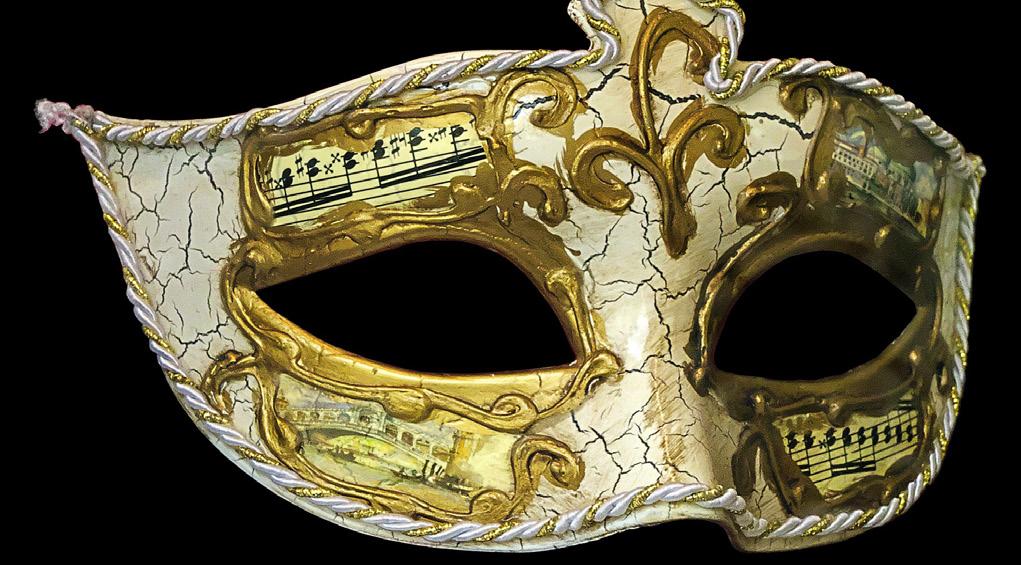
The QCAA syllabus aligns with the Australian Curriculum, emphasising key concepts and skills like characterisation, performance techniques, and collaboration. Students engage in drama practices, such as improvisation and scriptwriting, developing their communication and expressive abilities. They explore various dramatic forms and styles, analyse scripts for themes and character motivations, and gain insights into theatre production elements. Performance opportunities enhance stage presence and audience engagement, while reflective practice encourages self-assessment and growth. Drama serves as a medium for exploring social and cultural issues, promoting empathy and understanding. Overall, the QCAA syllabus in Drama for Years 9 and 10 offers a comprehensive and enriching learning experience, aligning with the broader goals of drama education in the Australian Curriculum.
$50 per semester.
Dance at Newman Cathoic College is a wonderful opportunity for all students, regardless of their prior dance experience, to participate in a fun, inclusive, and challenging physical activity. It aims to promote a sense of self-worth, foster confidence, and provide a positive environment for students to engage in physical fitness, creative expression, critical thinking and problem-solving skills.
Studying Dance prepares young people for participation in the 21st century as they gain highly transferrable skills and the capacity for flexible thinking and doing. Learning in Dance prepares students to engage in a multimodal world, additionally establishes a basis for further education and employment across many fields such as; Communication, Creative Industries, Education, Public Relations, Research, Science and Technology. Finally, Dance develops individuals who are culturally sensitive, creative, complex and reflective thinkers.
Students will employ technical and expressive skills to enhance communication of ideas, perspectives and/ or meaning when performing dance for audiences; specifically through the styles of Musical Theatre, Ballet and Contemporary Dance. Choreography assessment will require students to select and manipulate the elements of dance, choreographic devices and/or structure to communicate a choreographic intention or viewpoint. Project based learning will play a huge role in students creative process, along with the use of technology such as dance for film. Students should expect to submit a range of theoretical tasks such as extended analytical essays and exams. When responding to Dance students will analyse and evaluate the elements of dance, choreographic devices, genre or style-specific techniques, production elements, and/or technical and expressive skills in response to a focus question.
PREREQUISITES: See below
The study of Year 9 and 10 Dance will directly align with a senior ATAR pathway, the QCAA General Dance Syllabus. By studying Year 9 and 10 Dance students will be excellently prepared to apply the physical and technical demands of the senior syllabus, along with the attributes to analyse, create, evaluate, respond and discern.
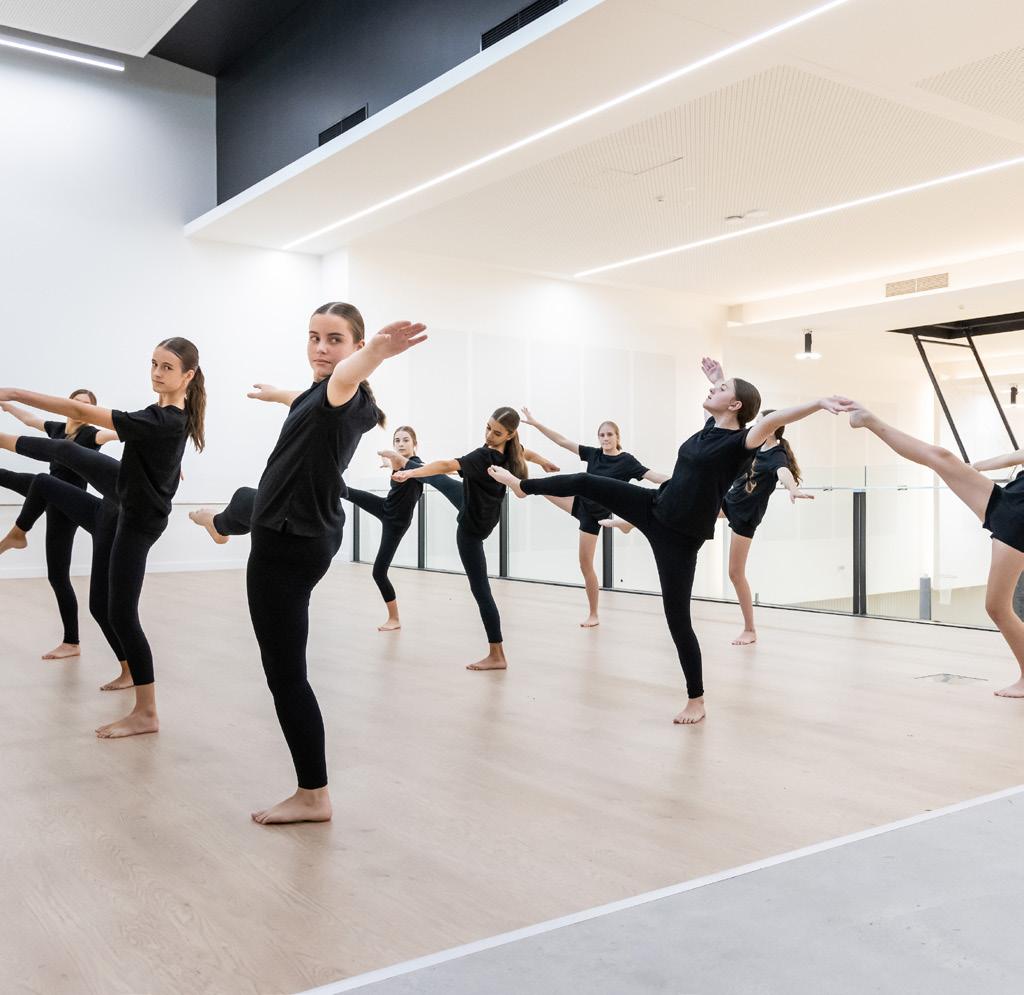
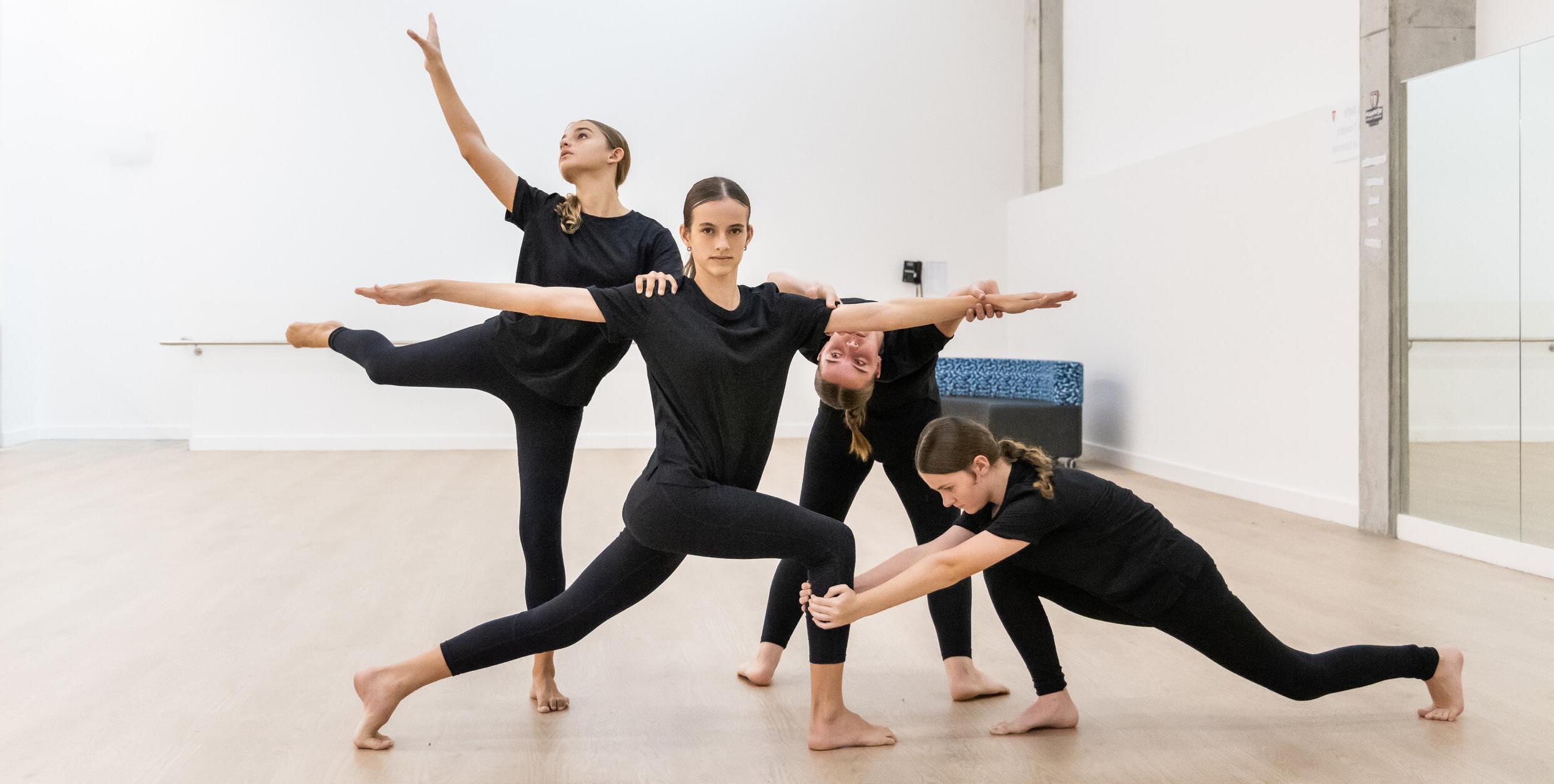
$50 per semester.
Optional: There will be an opportunity to attend a dance perfomance at CPAC or similar. Approx cost $50.
The key ideas of making and responding are developed throughout Year 7 and 8 Dance, however not essential. Technical and expressive requirements of styles such as Hip Hop, Jazz and Contemporary have also been developed in the junior years and this will better prepare students to study Dance into future Year levels.
PREREQUISITES: B or above in English
Literature presents students with the opportunity to explore their own interpretations and experiences as readers, making connections between their ideas and the experiences of literary texts.

Students will study a range of classical and contemporary literary texts and respond in analytical and creative ways. In written responses, students analyse representations and perspectives of entire works of literature. In creative
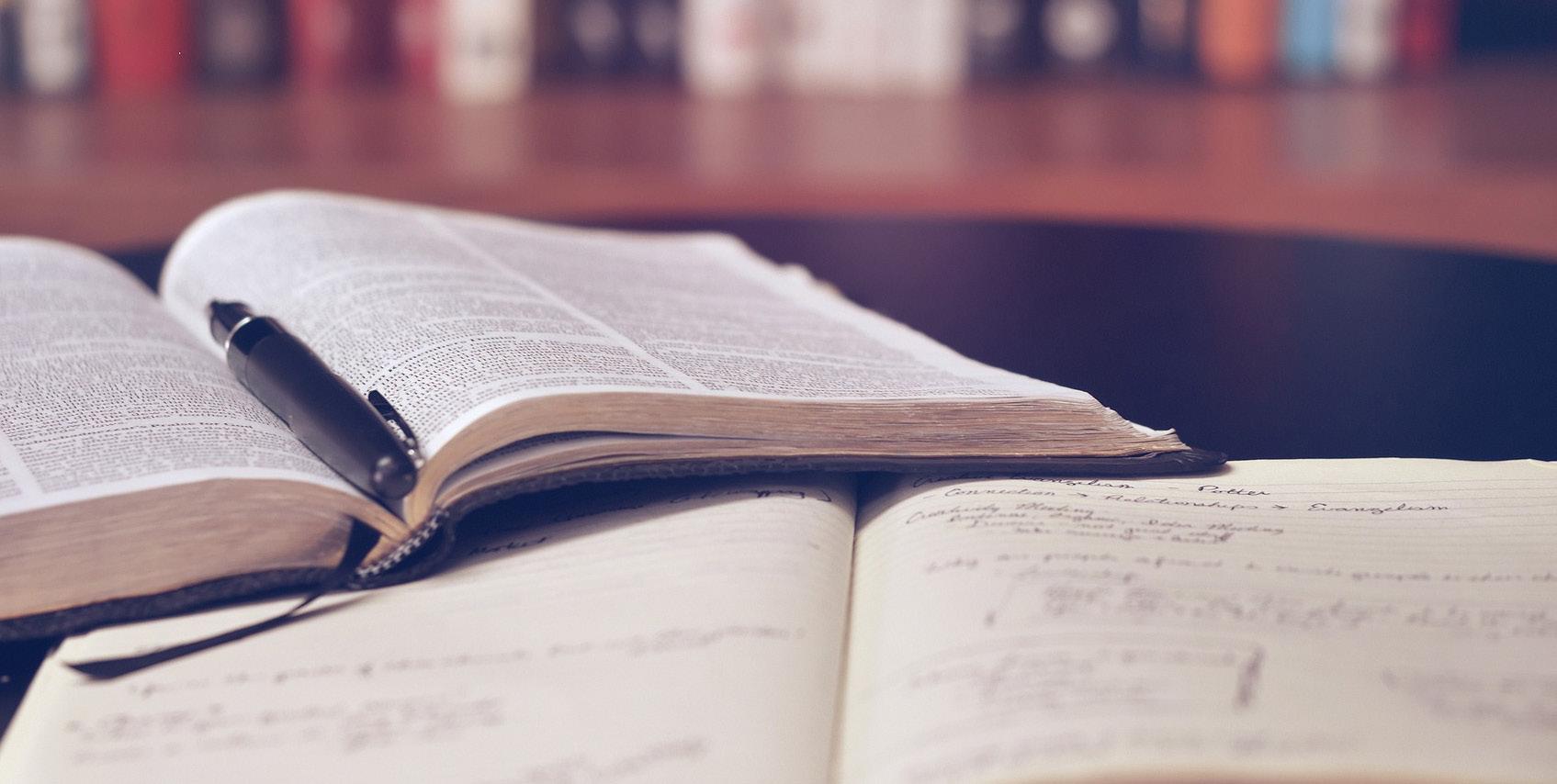
responses, students will make choices about language, genre, structure, purpose, themes, to create texts that are entertaining and enjoyable for readers. This course is designed for students with high level English skills.
These units are designed to prepare the student for the senior subject of Literature. The cognitive verbs of create and analyse are predominant in this course.
PREREQUISITES: SELECTIVE ENTRY. Mr Dockray
A training, coaching and development program for students looking to improve personal athletic performance. Students who select Sports Excellence will be expected to participate in the Newman Sports Academies and Interschool Sporting Competitions. Students will be introduced to functional fitness, injury prevention, strength and conditioning including resistance training and various types of training programmes. Weekly training sessions and modified fitness games will be conducted by experienced HPE staff. Students will participate in school and Interschool competitions including local gala days with the aim of participating in State and National School Title competitions in the future. This subject requires students to complete an online application process.
In Year 9 Sports Excellence students will learn to:
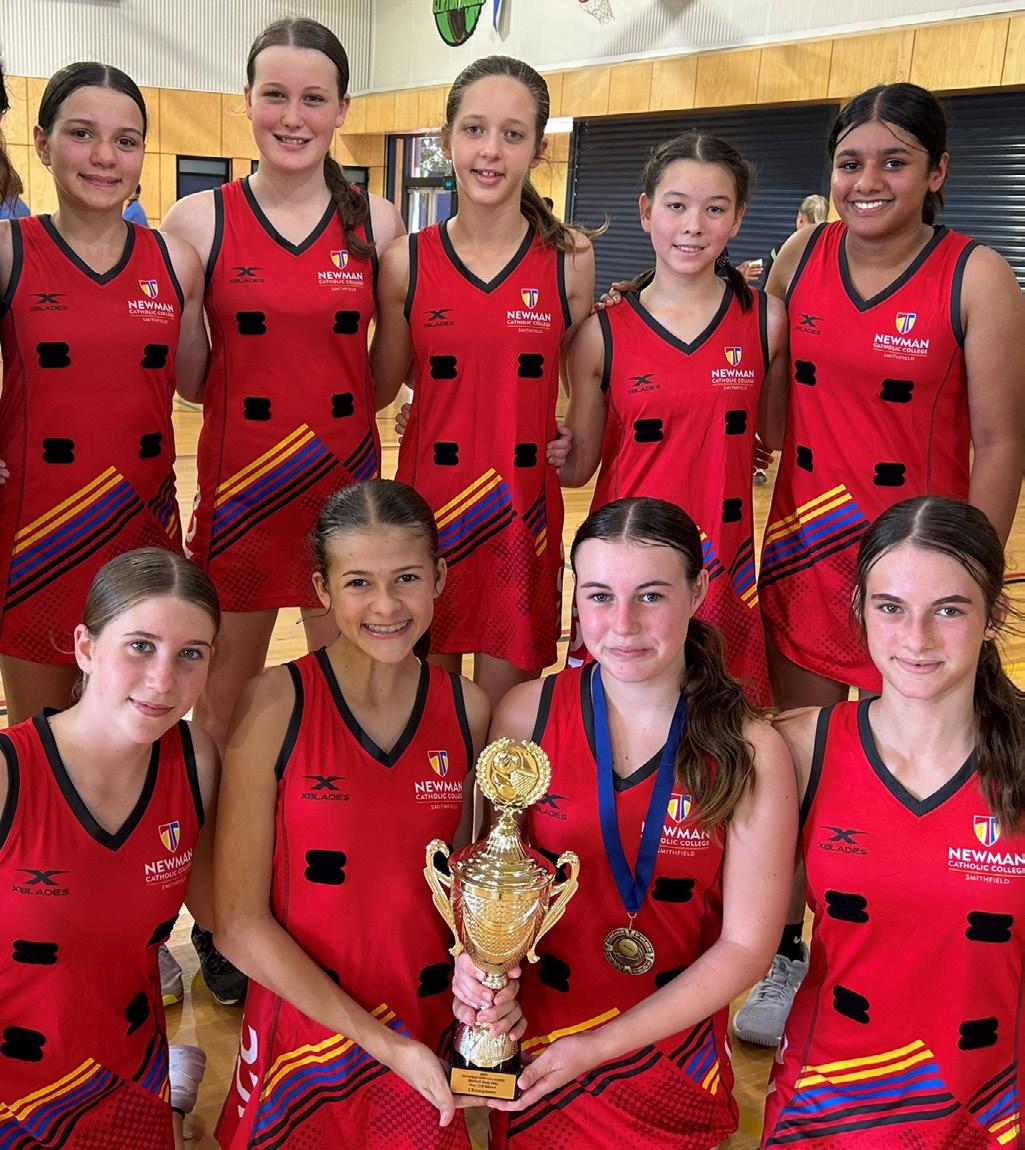
• Analyse, adapt and refine their own and others’ movement skills in a range of challenging movement situations to enhance performance.
• Create and refine movement strategies to achieve successful outcomes across a range of challenging movement situations.
• Participate in physical activities that promote health and social outcomes to design and evaluate participation strategies for themselves and others.
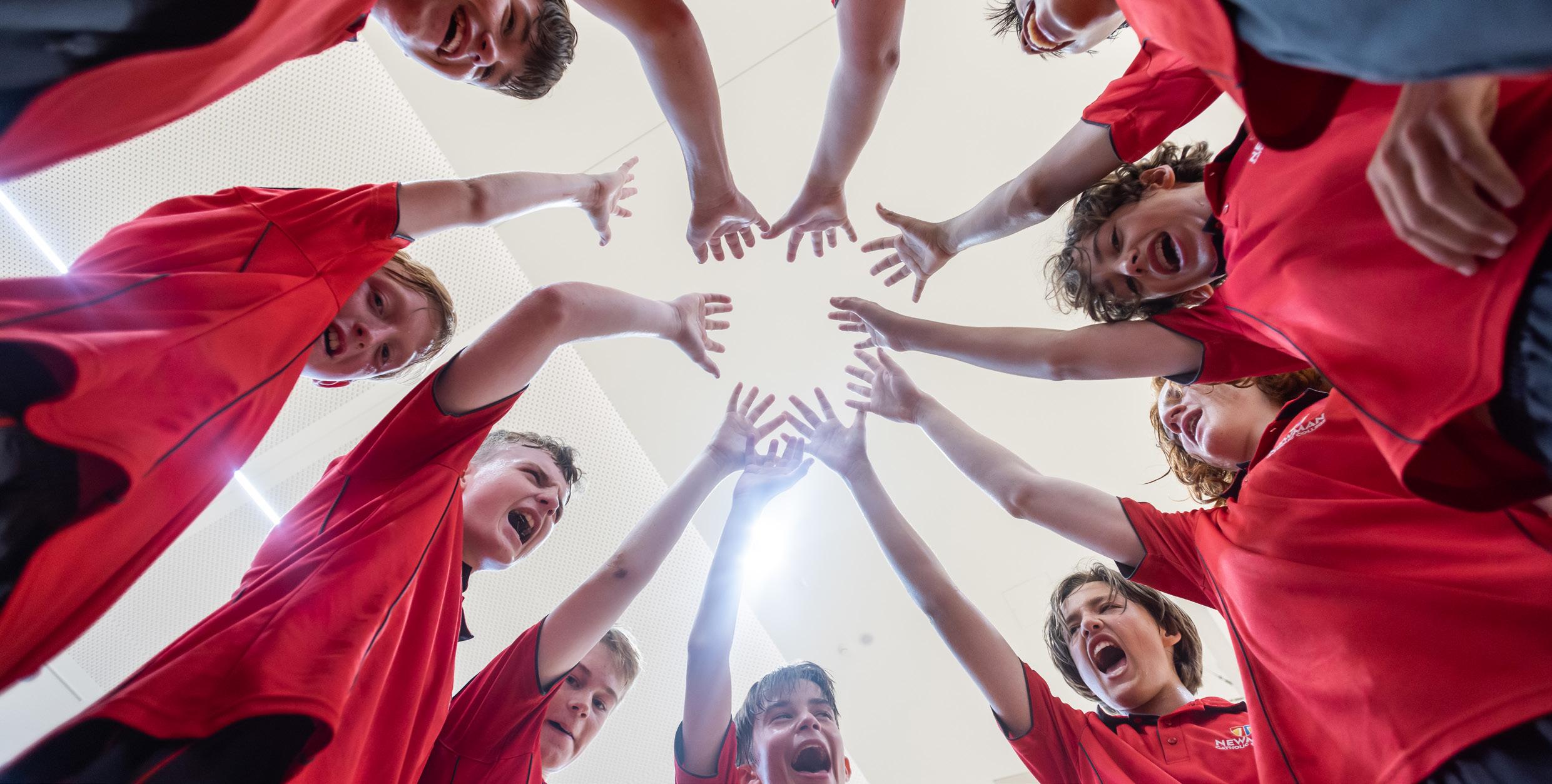
• Design, implement and evaluate personalised plans for improving or maintaining their own or others’ physical activity levels to achieve fitness, health and wellbeing outcomes.
• Demonstrate fair play and reflect on how ethical behaviour can influence physical activity outcomes for individuals and groups.
• Devise, implement and refine strategies for decision making when working in groups or teams that demonstrate leadership and collaboration skills.
• Participate in physical activities designed to enhance health, wellbeing and fitness, and design, apply and evaluate strategies for incorporating these activities into their lives.
LINKS TO YEAR 11 & 12
• Sports and Recreation Syllabus 2024 V1 - Applied
• Health and Physical Education Senior Syllabus - General
• Certificate III in Fitness - VET COST PER STUDENT
PREREQUISITES: Year 8 Outdoor Education – preferred but not essential

Students explore more adventurous activities as a way of exploring self and nature, and the lessons that can be learned for everyday living. In these years students are increasingly required to assess and manage risk in both recreation and everyday lives.

Through engagement in adventurous outdoor activity, students will gain skills for personal and group well-being and ongoing healthy, safe outdoor recreation participation. Students develop the knowledge and skills to prepare for and participate in an independent lightweight journey with adult guidance and supervision.
Students assume leadership roles in group management during these journeys. They are able to assume increased responsibility for the nature and forms of such journeys. They develop an understanding of natural environments through investigation of recent issues relating to conservation.
In Year 9 Outdoor Education, through exploration, discovery and immersement in nature, students will learn to:
• Plan, rehearse and evaluate strategies for managing situations where their own or others’ health, safety or wellbeing may be at risk.
• Evaluate the influence of respect, empathy, power and coercion on establishing and maintaining respectful relationships.
• Propose strategies and actions individuals and groups can implement to challenge biases, stereotypes, prejudices and discrimination, and promote inclusion in their communities.
• Analyse, adapt and refine their own and others’ movement skills in a range of challenging movement situations to enhance performance.
• Create and refine movement strategies to achieve successful outcomes across a range of challenging movement situations.
• Devise, implement and refine strategies for decision making when working in groups or teams that demonstrate leadership and collaboration skills.
• Transfer and adapt skills and strategies from previous experiences to create successful outcomes in unfamiliar movement situations.
• Reflect on and evaluate findings of an inquiry to propose individual and collective action in response to a contemporary geographical challenge, taking account of environmental, economic, political and social considerations; and explain the predicted outcomes and consequences of their proposal.
Sports and Recreation Senior Syllabus V1 2024 - General COST PER STUDENT
$100 per semester
Newman Catholic College is proud to offer The Duke of Edinburgh’s International Award to our students. The Award is an internationally recognised program that acknowledges the diverse activities and skills which participants are committed to. During their time achieving the Award, a student will develop new skills and interests; meet new friends while strengthening current friendships and be rewarded for their efforts. Students are able to use both extracurricular school activities and club or personal pursuits in the community towards their Award. This program is an extracurricular activity that students complete outside normal class lesson time.
Although the Award means different things to different people, one big advantage is that it is immediately recognisable and highly regarded by companies, educational institutions and many other organisations around the world. The ‘Duke of Ed’ Award demonstrates a well-rounded and committed individual who is diligent, confident and reliable; all traits that can be difficult to project onto a resume. Most of all, the Award is designed to be fun and fulfilling and Newman Catholic College is keen to ensure this is the case.

Students who take part in the Award must complete four areas: Service, Physical Recreation, Skill and Adventurous Journey. All participants are supported by a network of adult Award Leaders, Assessors and Supervisors. Students self-manage their Award through an Online Record Book. The Duke of Edinburgh’s International Award includes three levels: Bronze, Silver, and Gold, each progressively more challenging. In Year 9 students are eligible to start the Bronze Award.
Through this challenging journey of self-discovery, participants:
• Achieve an Award recognising individual goal setting and self-improvement through persistence and achievement.
• Are equipped and empowered to achieve their personal best and learn to take responsibility for their goals and choices.
• Become connected to and actively engaged within their immediate community and make a real difference to society through their positive contributions and involvement.
• Learn important life skills such as perseverance and overcoming barriers to success.
• Build a comprehensive resume which assists in applications for scholarships, further study and job applications.
The current cost of the Bronze Award is $175 to register. Participating in the Adventurous Journey Expeditions will incur a further cost to cover transport, camping fees and other items including first aid, navigation and communication equipment.
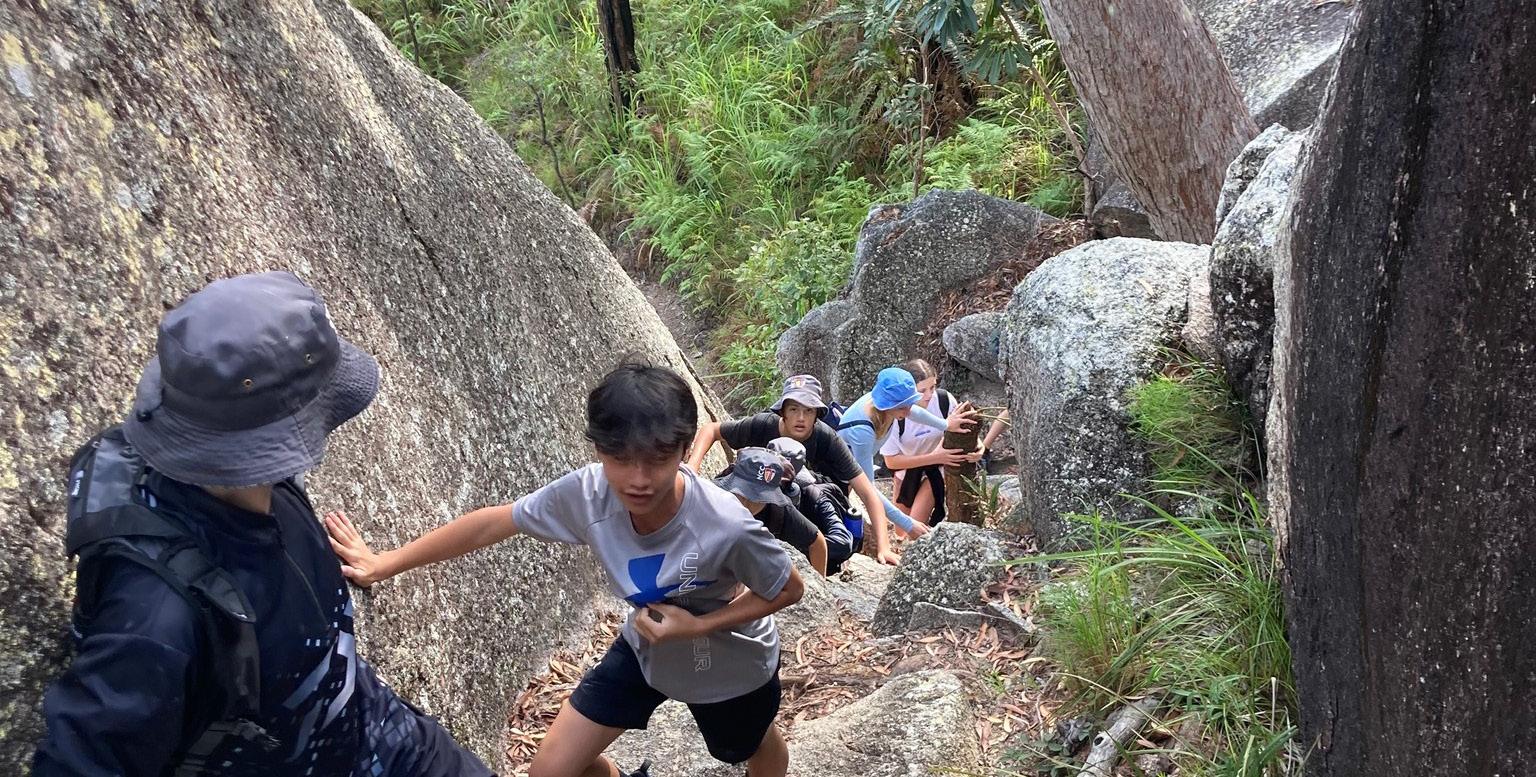
For more information, please visit The Duke of Edinburgh’s International Award website at https://dukeofed.com.au/
Voluntary Service - three months
Skills - three months
Physical Recreation - three months
Plus undertake an extra three months in one of the above sections
Adventurous Journey - two days and one night
